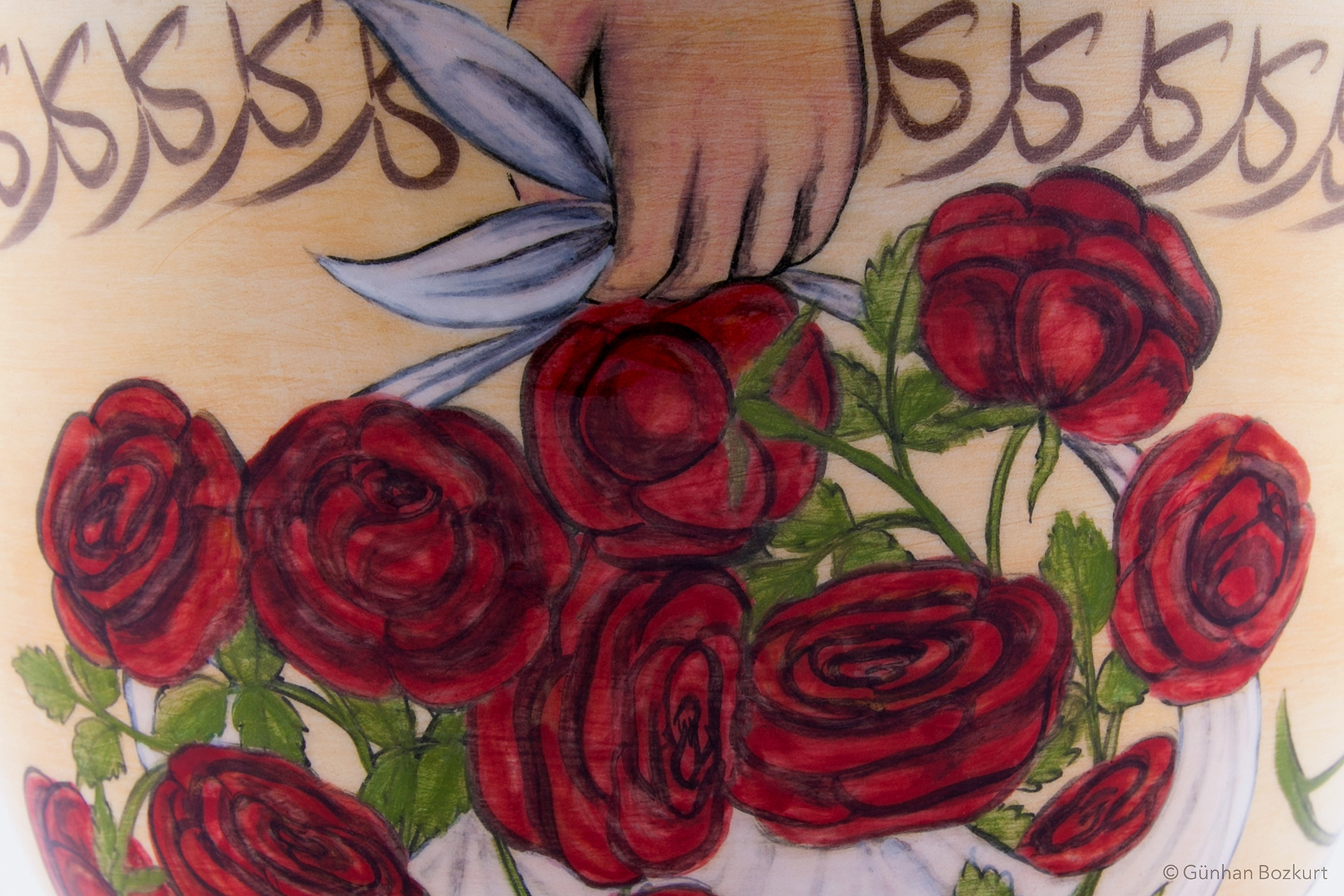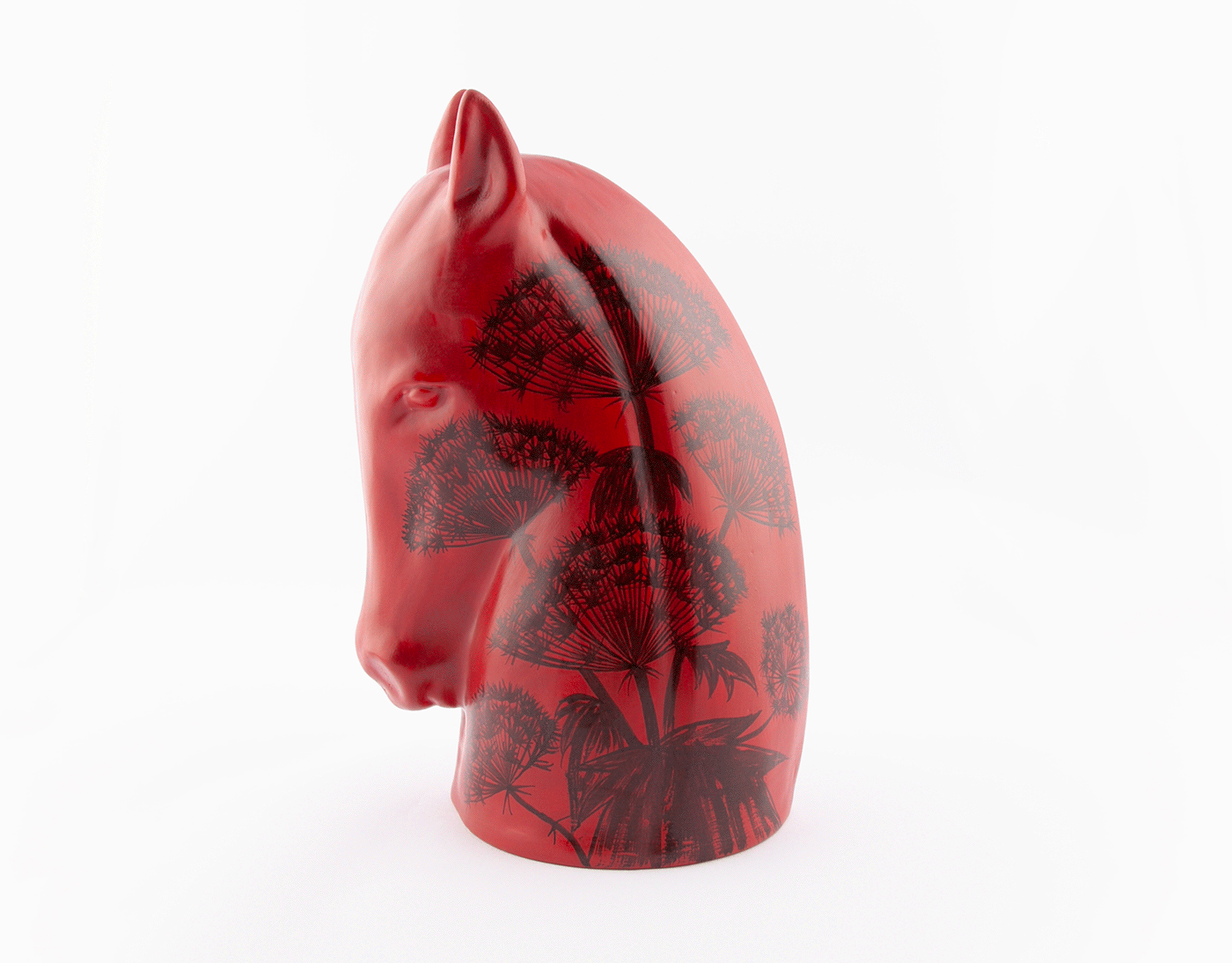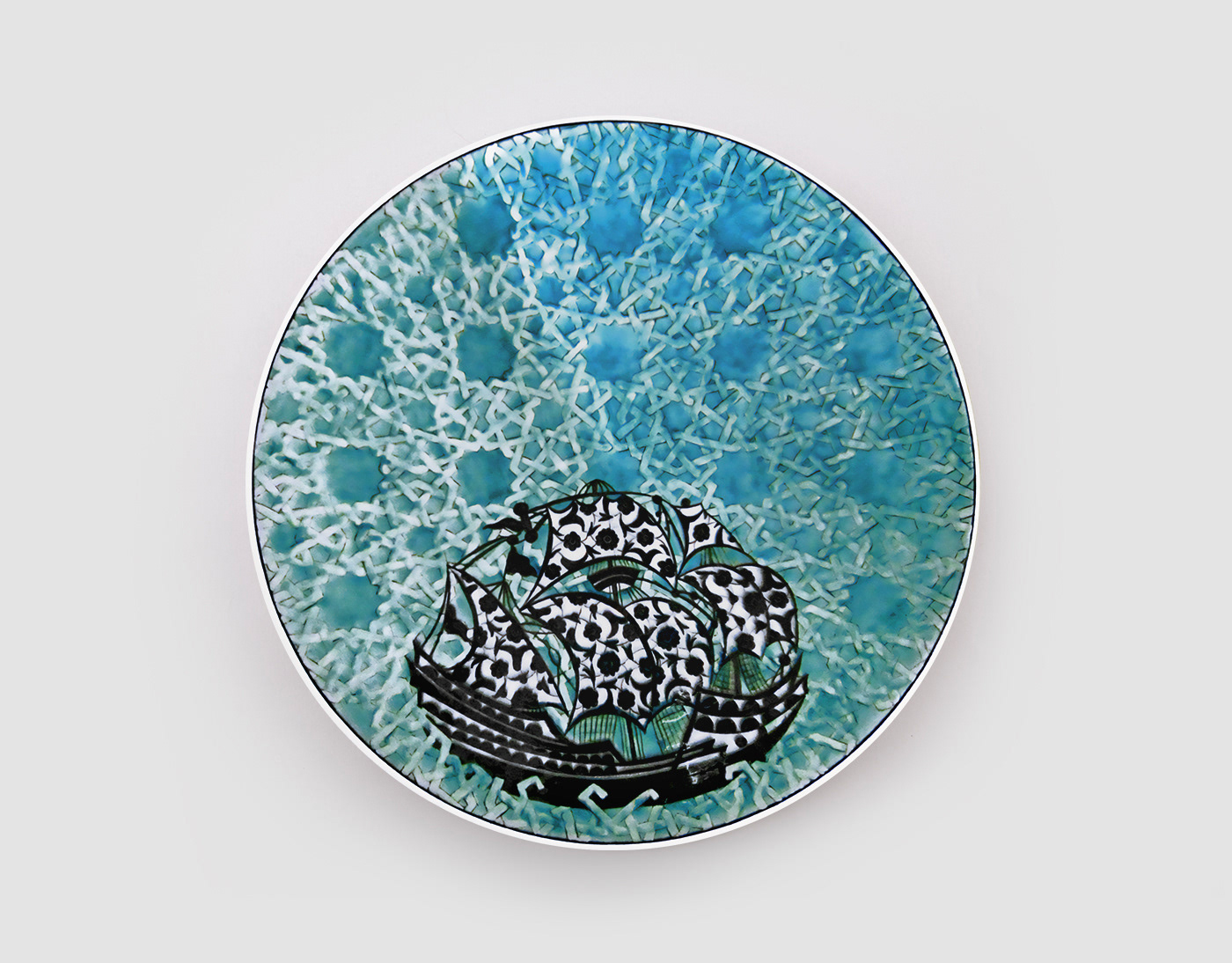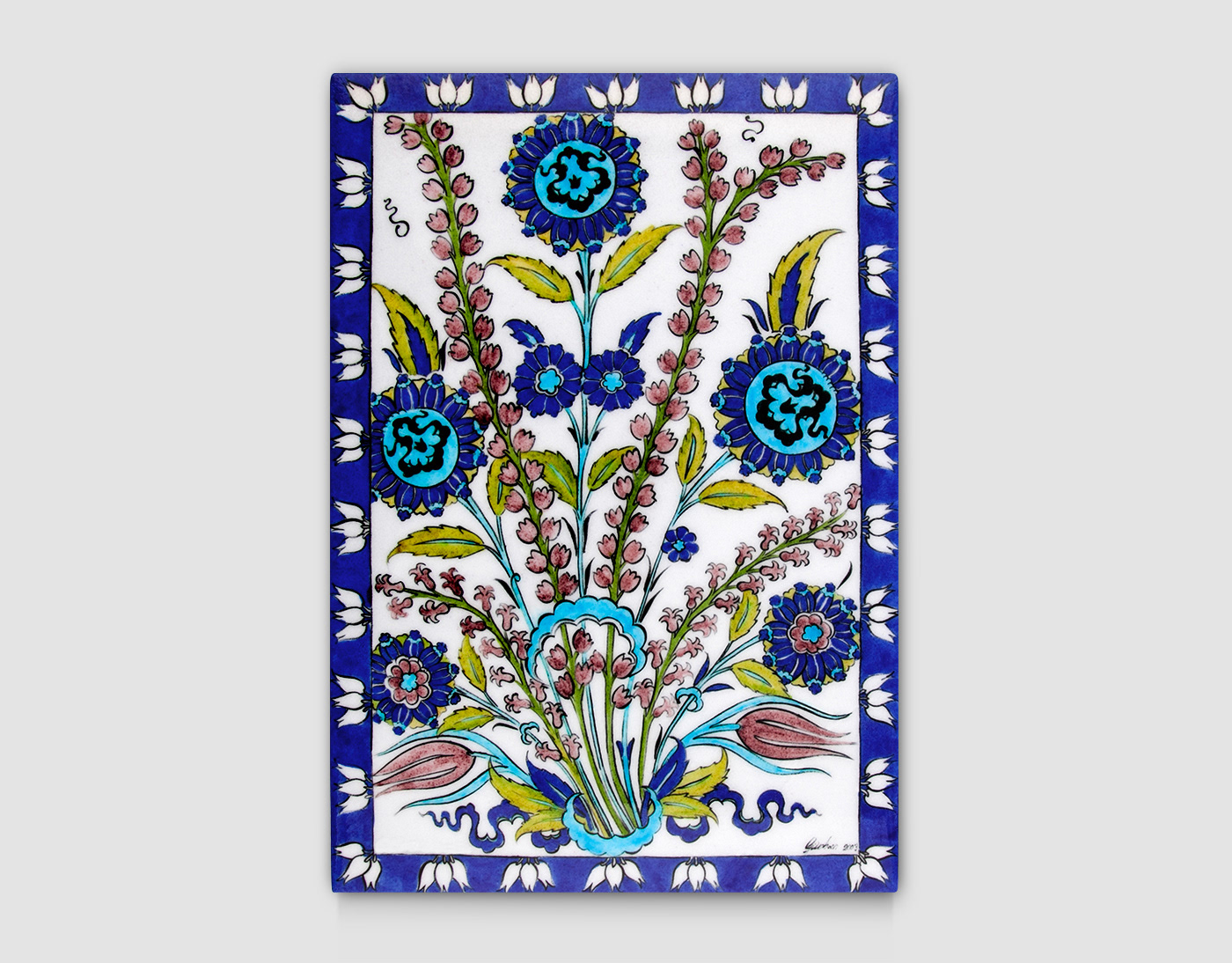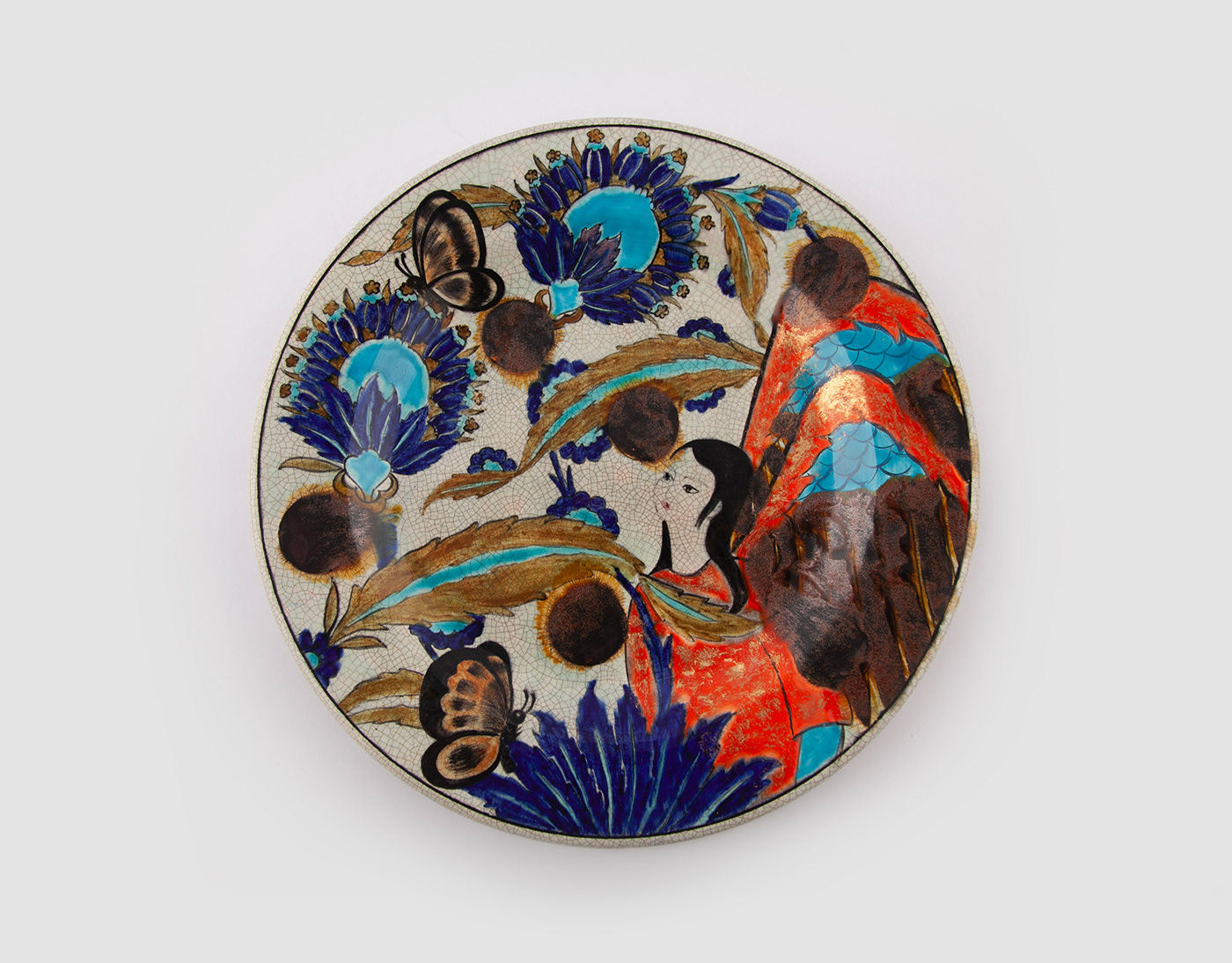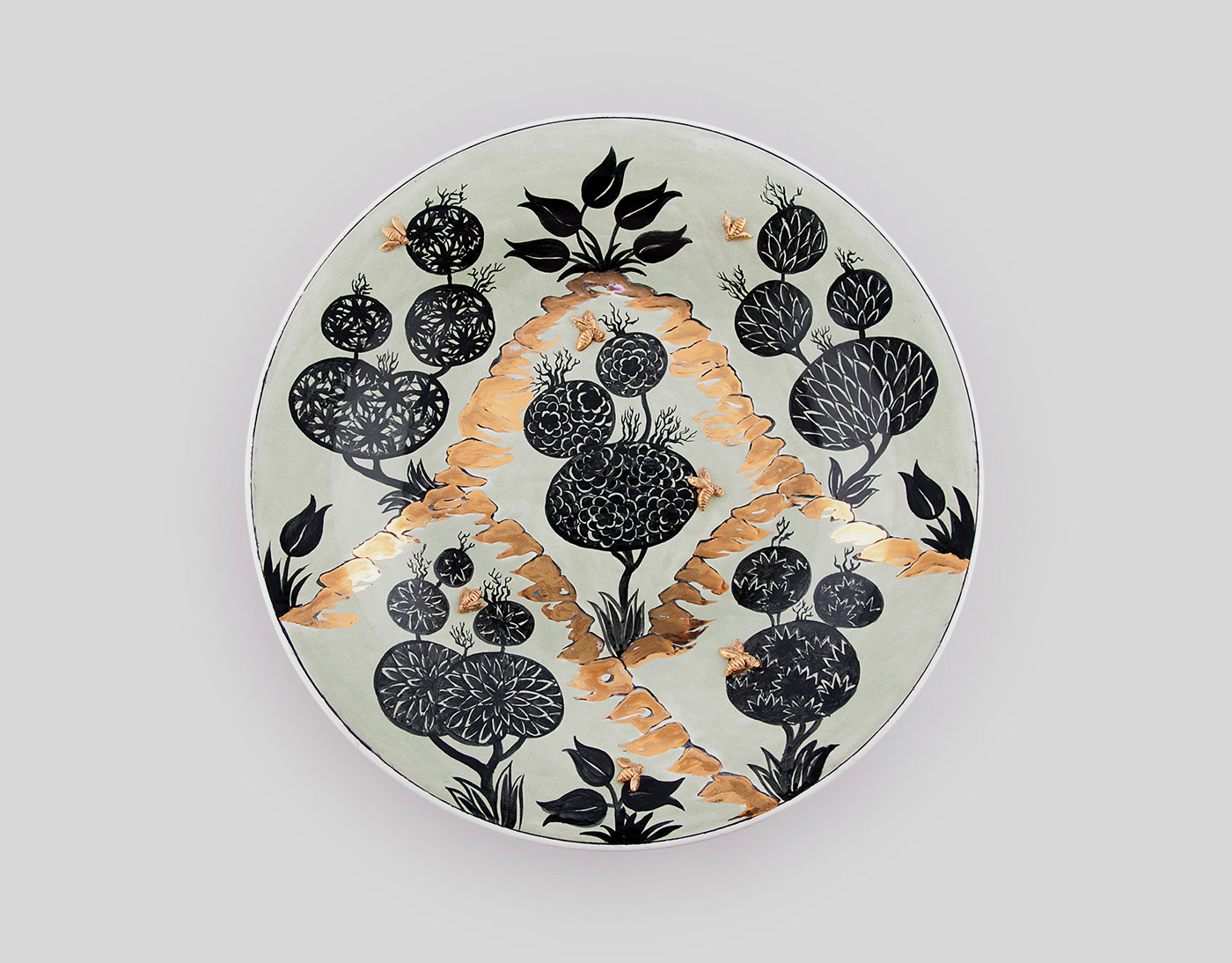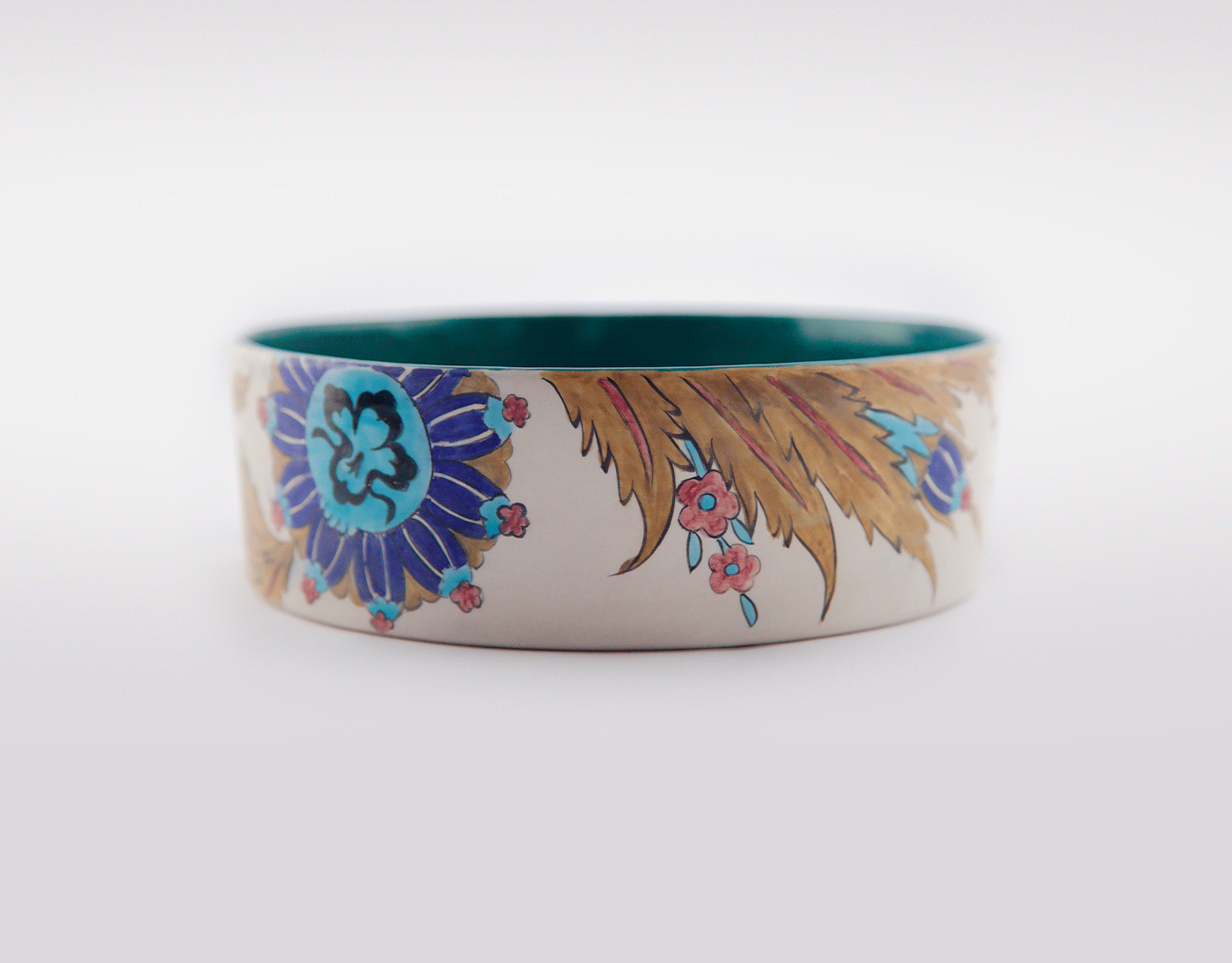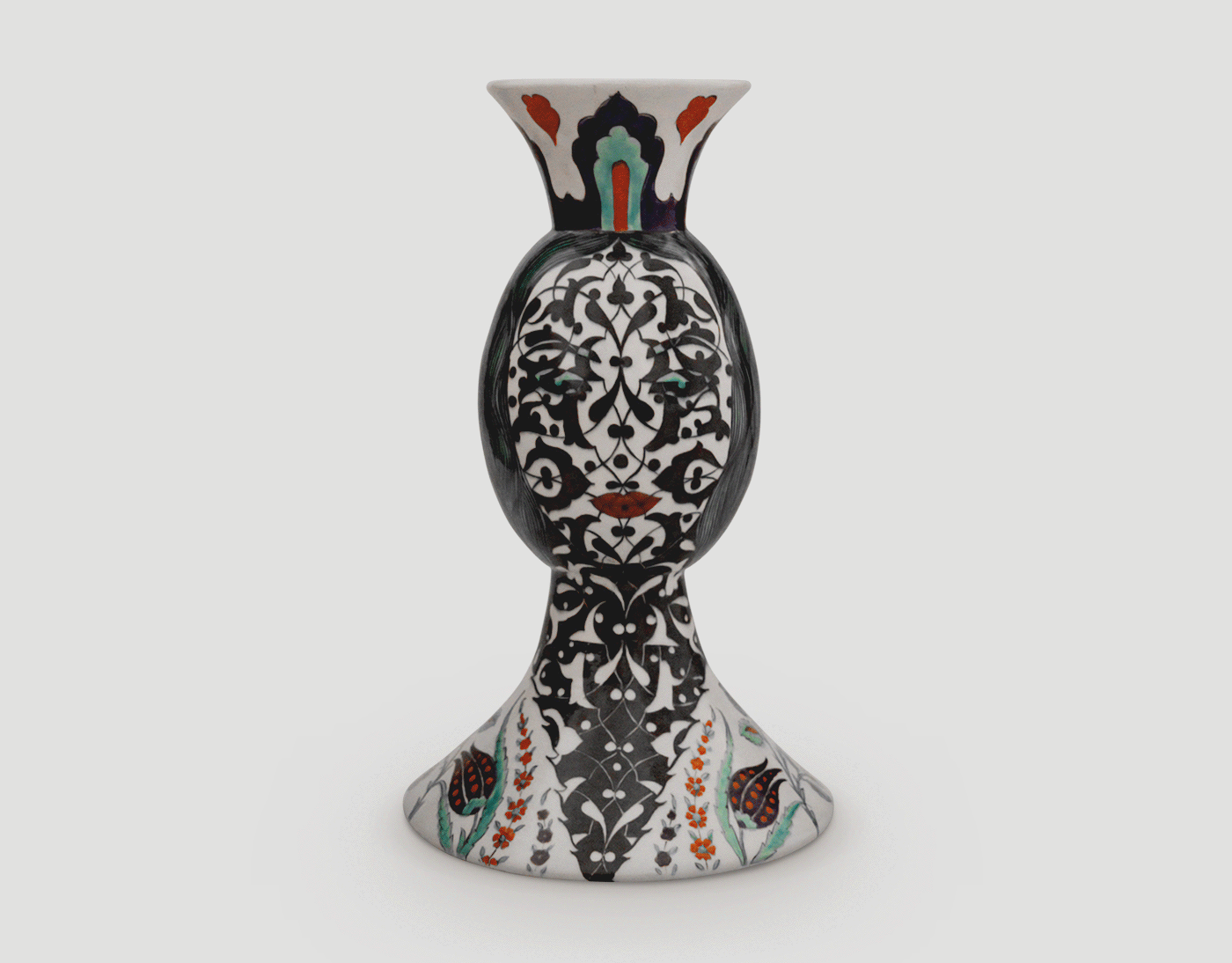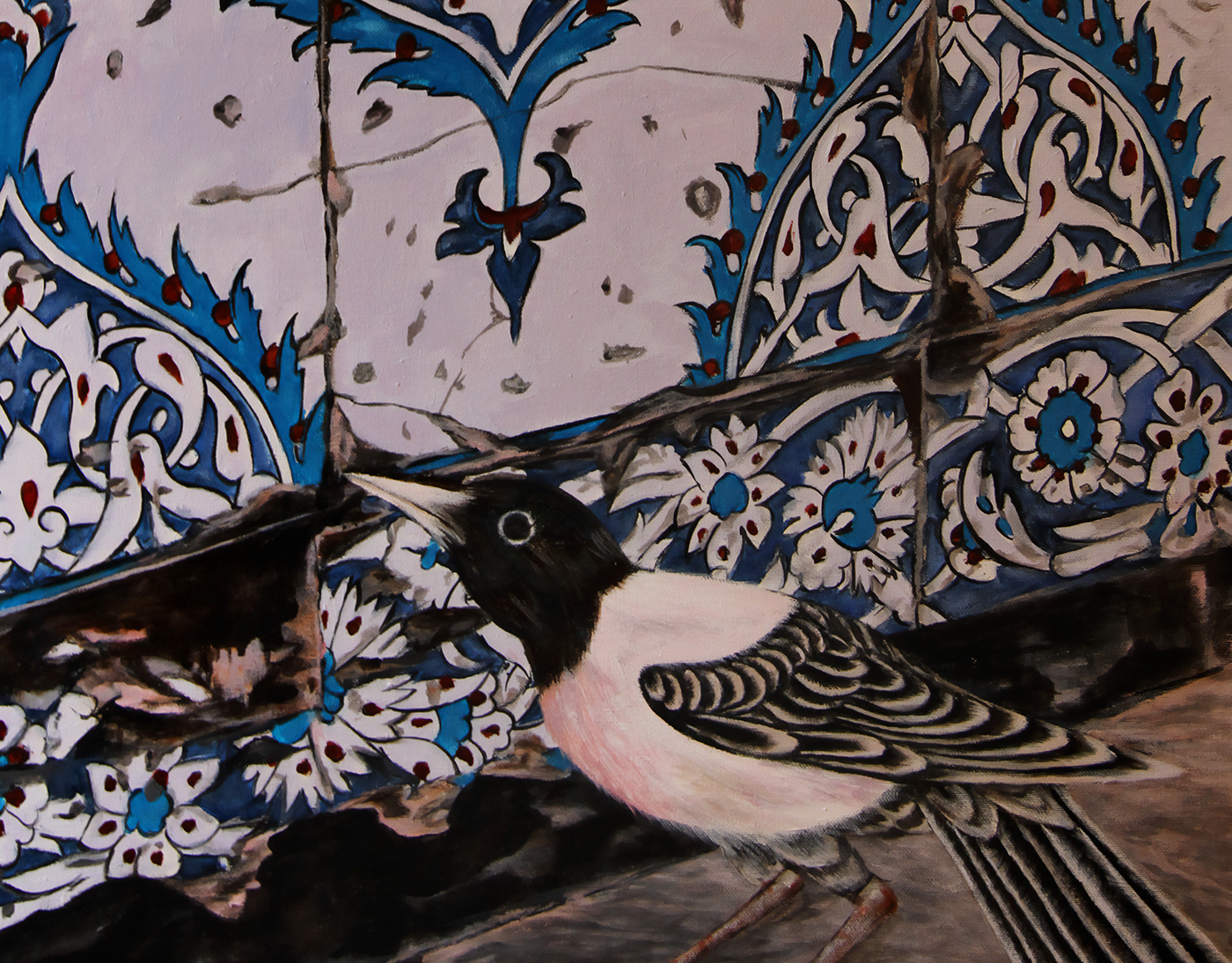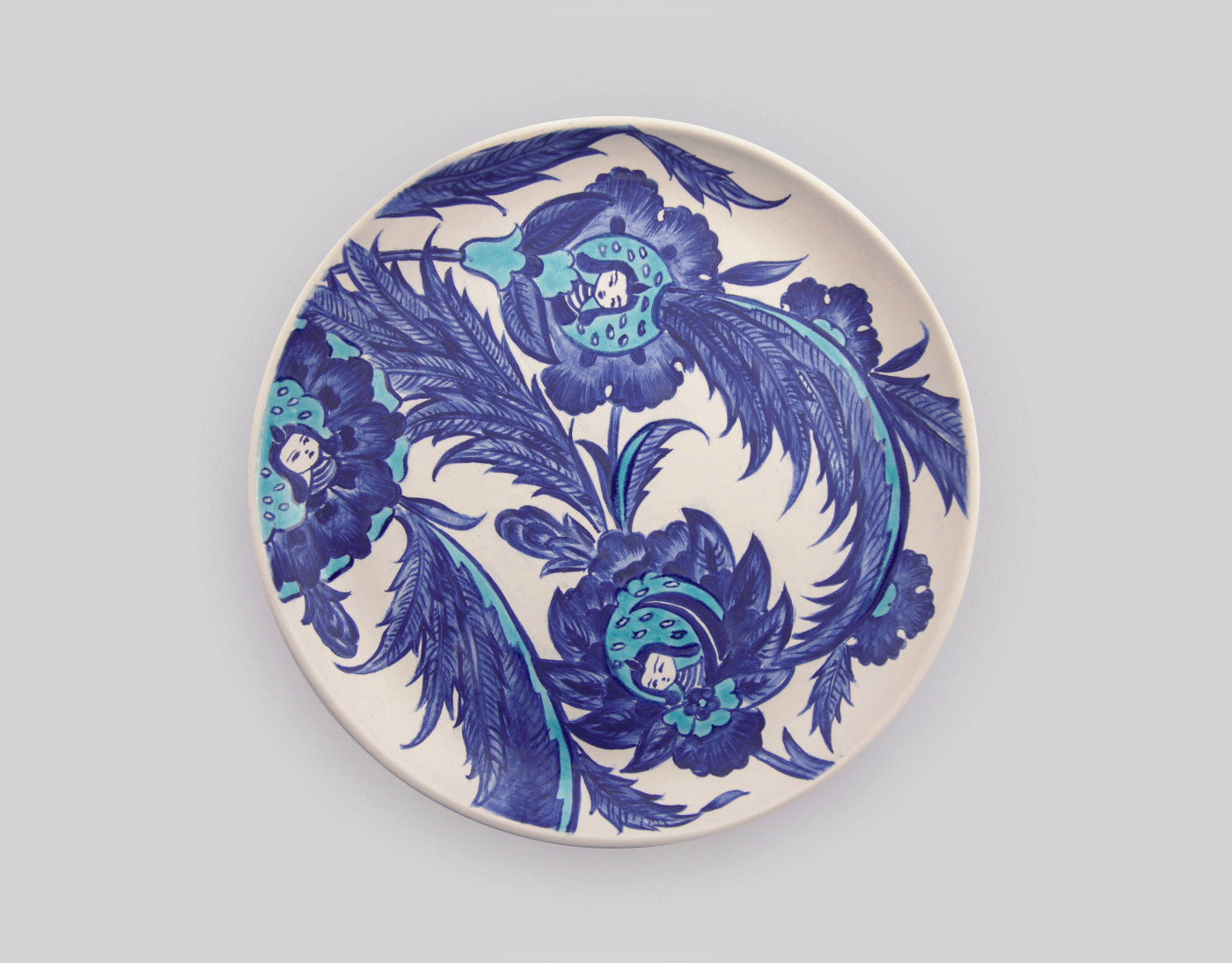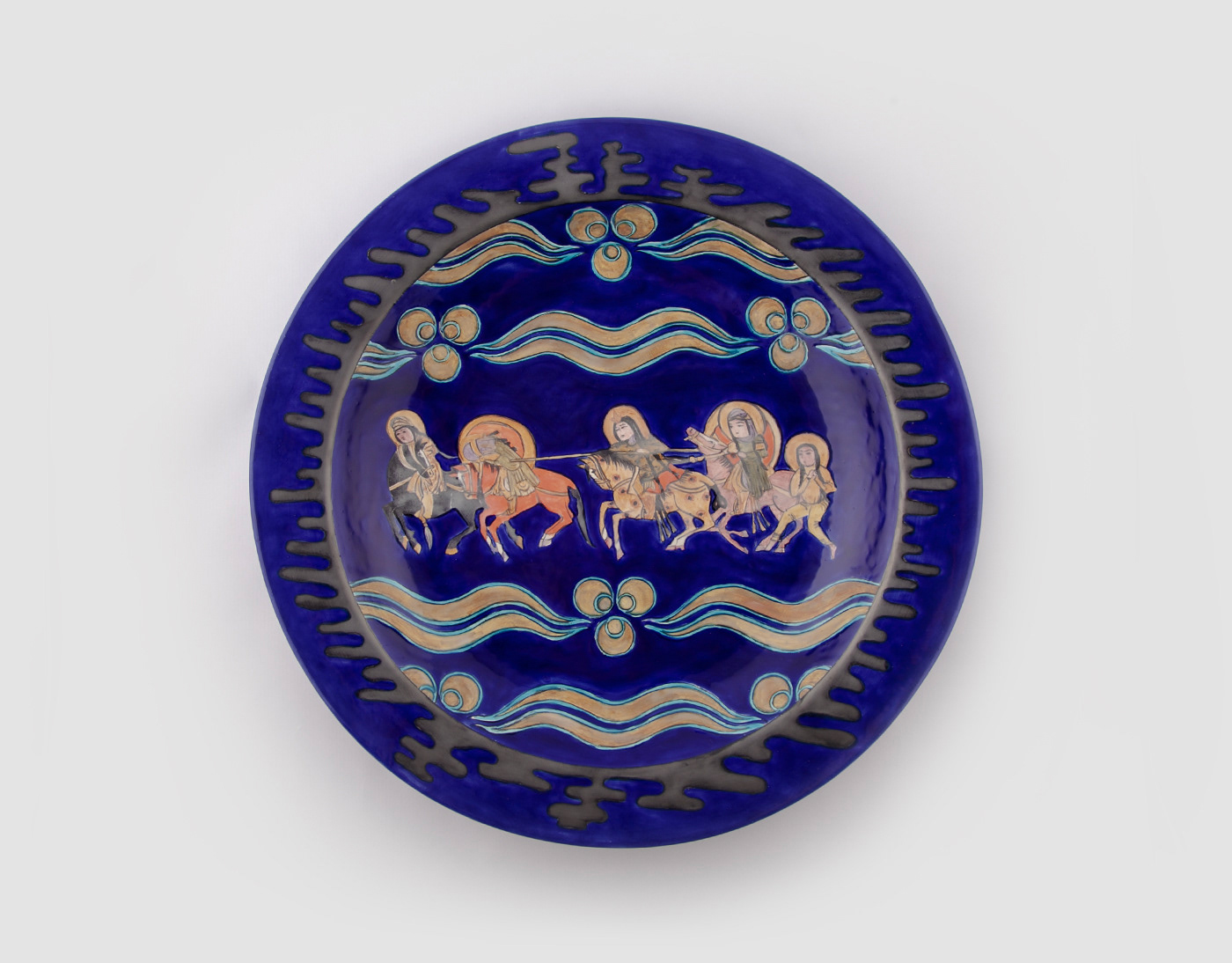RUMI
To follow the scenes, the viewer must either turn the ceramic itself or walk around it. Thus, every encounter with these works also becomes an act of turning — echoing the movement of the Firmament...
To follow the scenes, the viewer must either turn the ceramic itself or walk around it. Thus, every encounter with these works also becomes an act of turning — echoing the movement of the Firmament...
I completed my Master of Fine Arts degree in Ancient Ceramics Restoration at the Social Sciences Institute of Mimar Sinan University of Fine Arts (2005–2007). part of my thesis, titled The Philosophy of Rumi and New Interpretations of Ceramics, I studied the stories in Anecdotes of the Wise by Ahmed Eflâkî and reinterpreted them in the form of ceramics.
To follow the scenes, the viewer must either turn the ceramic itself or walk around it. Thus, every encounter with these works also becomes an act of turning — echoing the movement of the Firmament — a gesture that lies at the heart of Rumi’s philosophy.
The story takes place in the desert. The young son of a wealthy tradesman from the city of Konya falls asleep and loses track of the caravan. After walking for a while, he sees a tent in the distance. Weary from the long walk, he runs toward it. At the entrance of the tent stands an imposing man, holding a pot of water and cooking halva over a fire. The young man asks why. The man replies that he is a disciple of Rumi and waits for him to pass by, as he does every day. At that moment, Rumi appears in the distance. When he arrives, they greet each other, and Rumi is served halva and water. The young boy begs Rumi to help him find his friends. Instantly, he finds himself back with the caravan.
Feast in the Desert / ceramic vase, Ø 29 cm, h. 28 cm
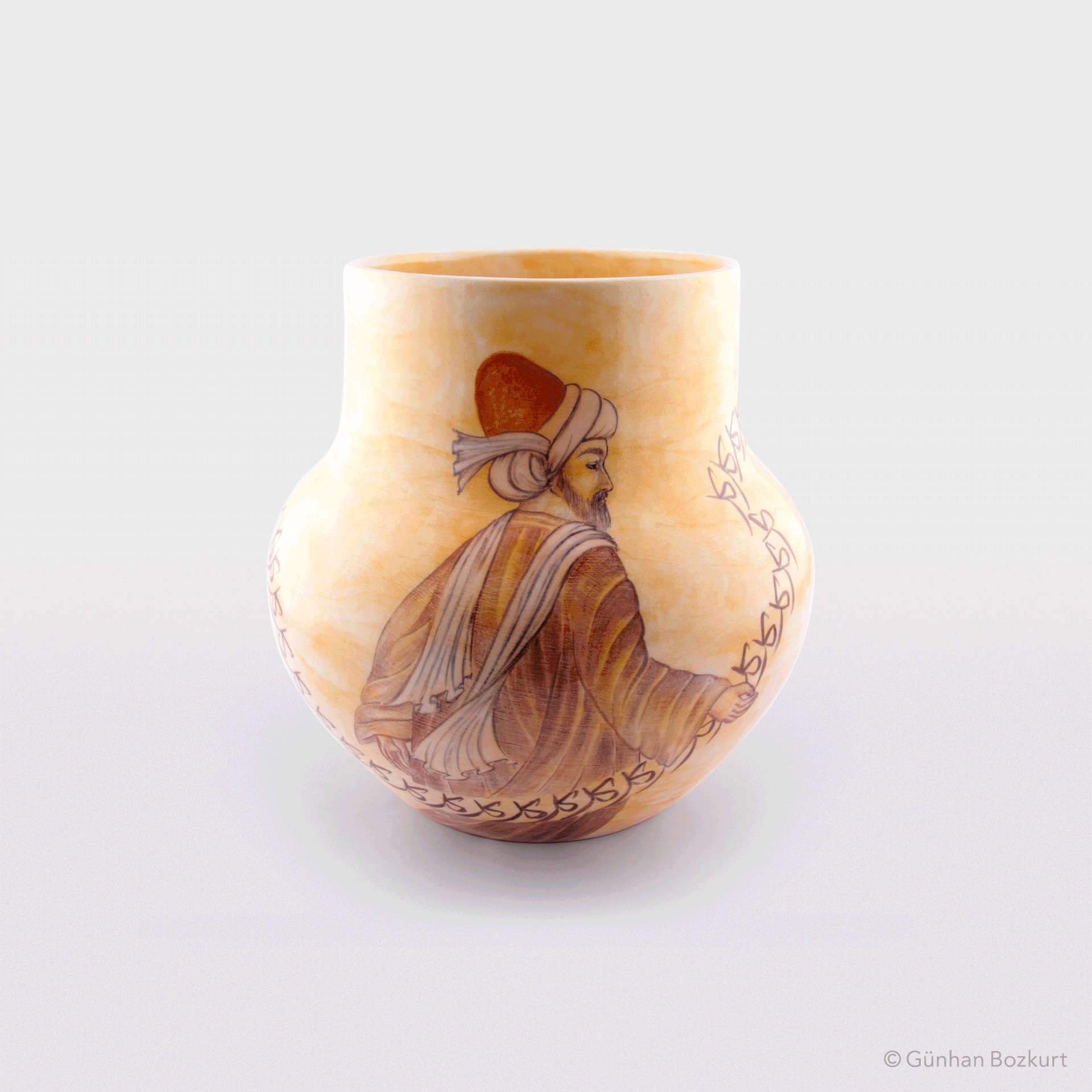
Feast in the Desert / vase, Ø 29 cm, h. 28 cm
One day, Rumi visits the vineyard of a beloved disciple, where the group is holding a seven-day, seven-night gathering. One of the singers silently worries that he has not been able to bring food to his family for days. Sensing this, Rumi approaches, takes a handful of silver coins from his robe, and pours them into the singer’s tambourine.
The Firmament / ceramic vase, Ø 27 cm, h. 30 cm
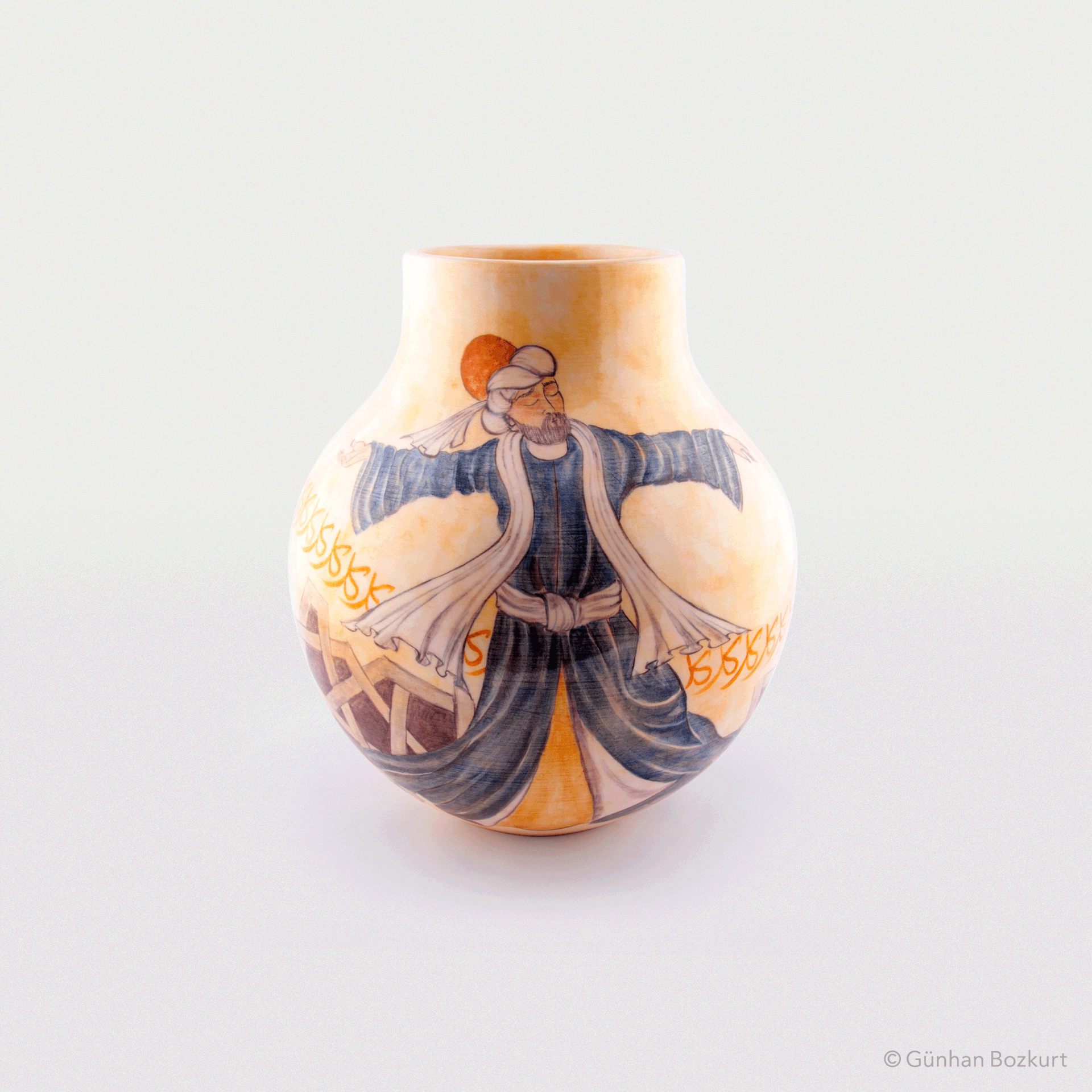
The Firmament / vase, Ø 27 cm, h. 30 cm
Bahâeddin Bahri, a friend of Rumi’s disciple Çelebi Hüsameddin, deeply longs to meet Rumi. One day, when Çelebi Hüsameddin comes to visit him, Bahri suddenly sees Rumi himself ascending the stairs. Delighted, he welcomes his guests and wishes to serve them food. Yet the servant explains that all the food has been consumed, and he has already filled the pot with water to wash it. Rumi then asks Bahâeddin Bahri to summon the servant and bring the pot. As soon as Rumi takes the pot into his hands, it miraculously fills with meat and rice. Rumi declares that this is God-sent food from the unseen world and must be eaten. Witnessing this miracle, Bahâeddin Bahri devotes himself as a disciple of Rumi.
The Blessing of Rumi / ceramic vase, Ø 28 cm, h. 31 cm
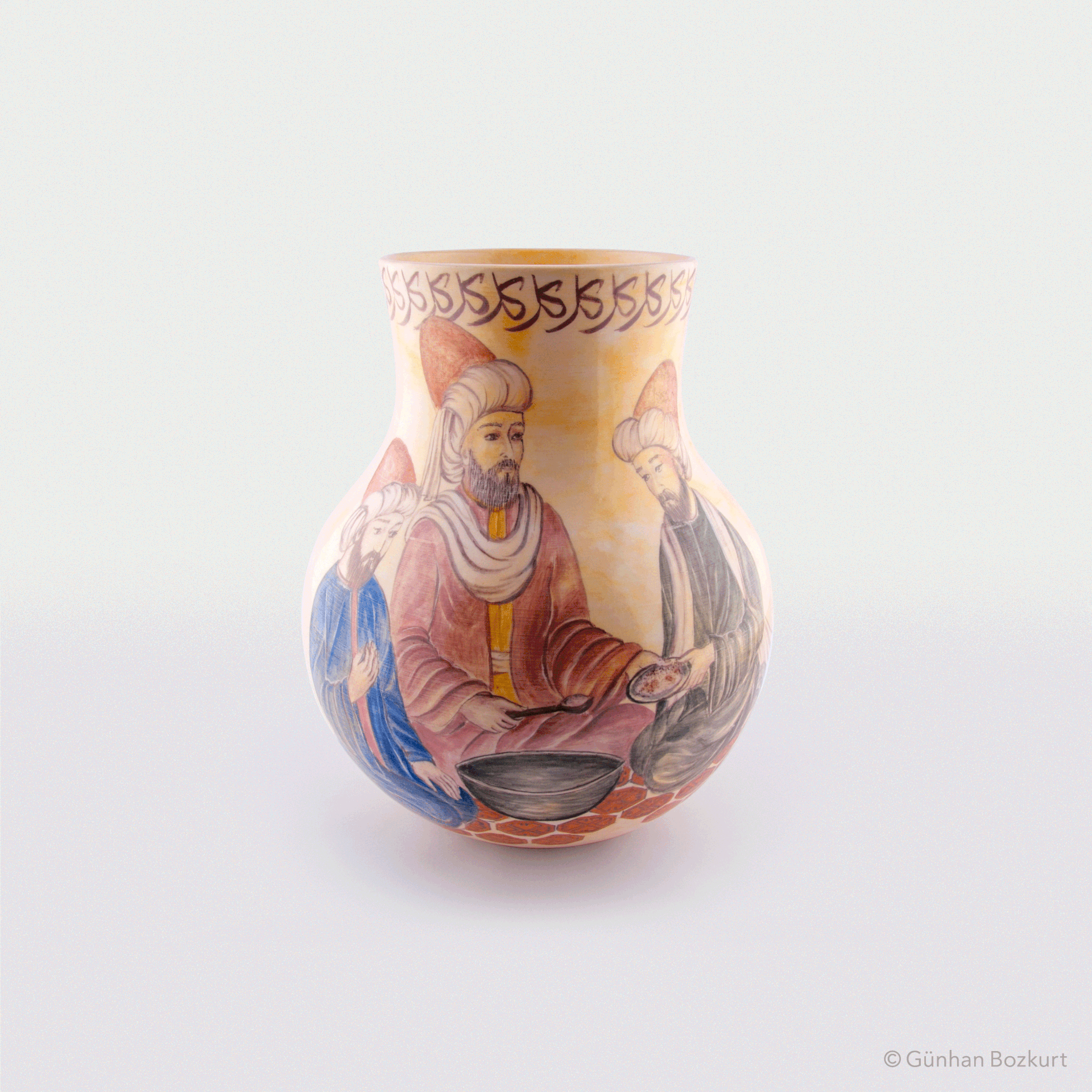
The Blessing of Rumi / vase, Ø 28 cm, h. 31 cm
The story is narrated by Kira Hatun, Rumi’s wife. Standing at the door, she watches Sems and Rumi in conversation. Suddenly, the walls of the house crack open, and six imposing men from the unseen world step inside. They hand their roses to Rumi, then pray behind him in reverence before leaving through the same opening. Kira Hatun, amazed and frightened, receives the roses from Rumi, who asks her to keep them safe. These fresh, fragrant roses — sent from the Garden of Eden — are believed to be a remedy for the eyes.
Guests / ceramic vase, Ø 28 cm, h. 30 cm
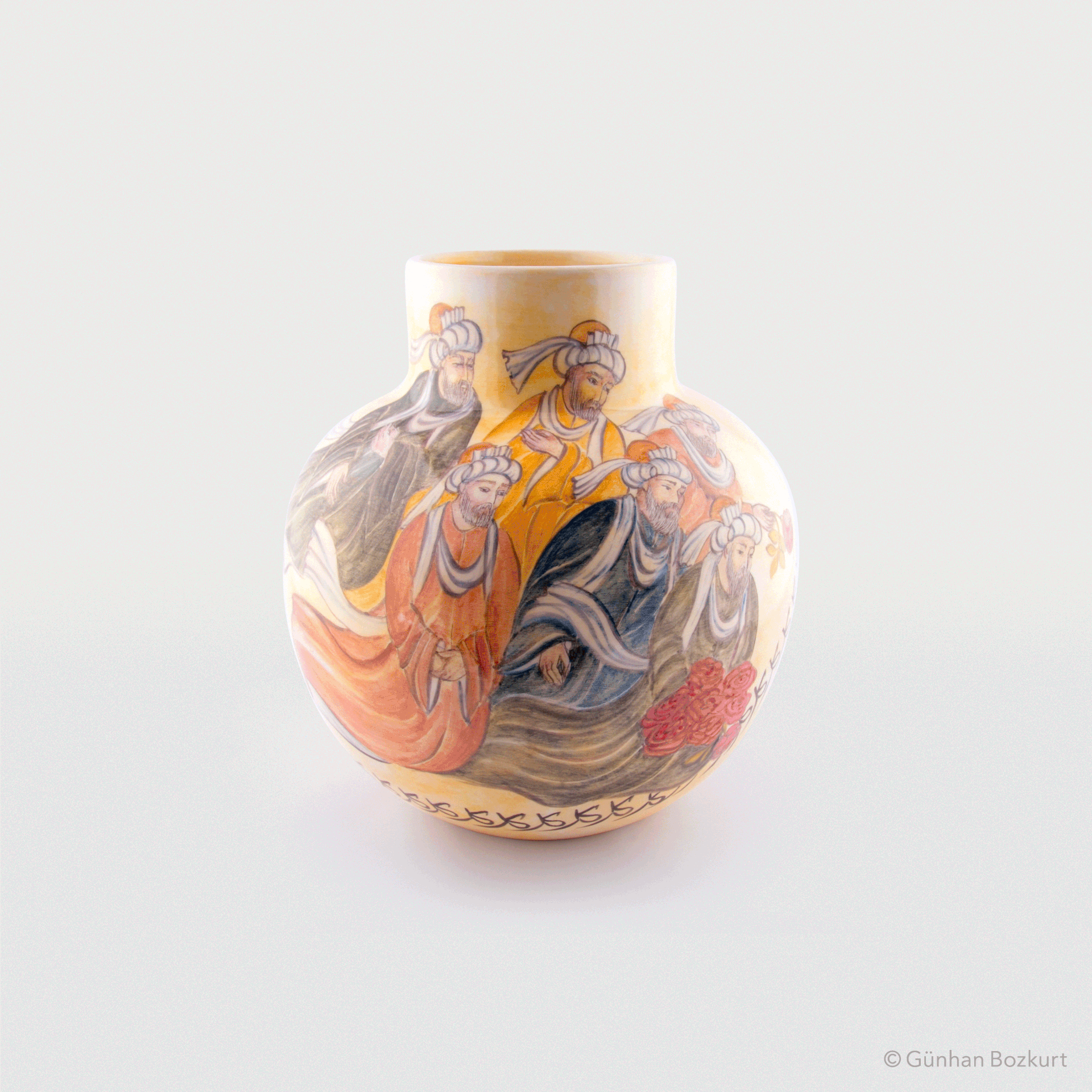
Guests / vase, Ø 28 cm, h. 30 cm
One day, while Rumi is speaking with his companions at the madrasah, a white-bearded dervish enters and falls at his feet. He recounts the years he has served his sheikh and the suffering he endured.
Rumi gently asks what the sheikh has done in return for his devotion. Rumi says: A true sheikh makes the disciple’s life easier, without him even realizing it, and leads him to God.
Dervish / ceramic vase, Ø 27 cm, h. 31 cm
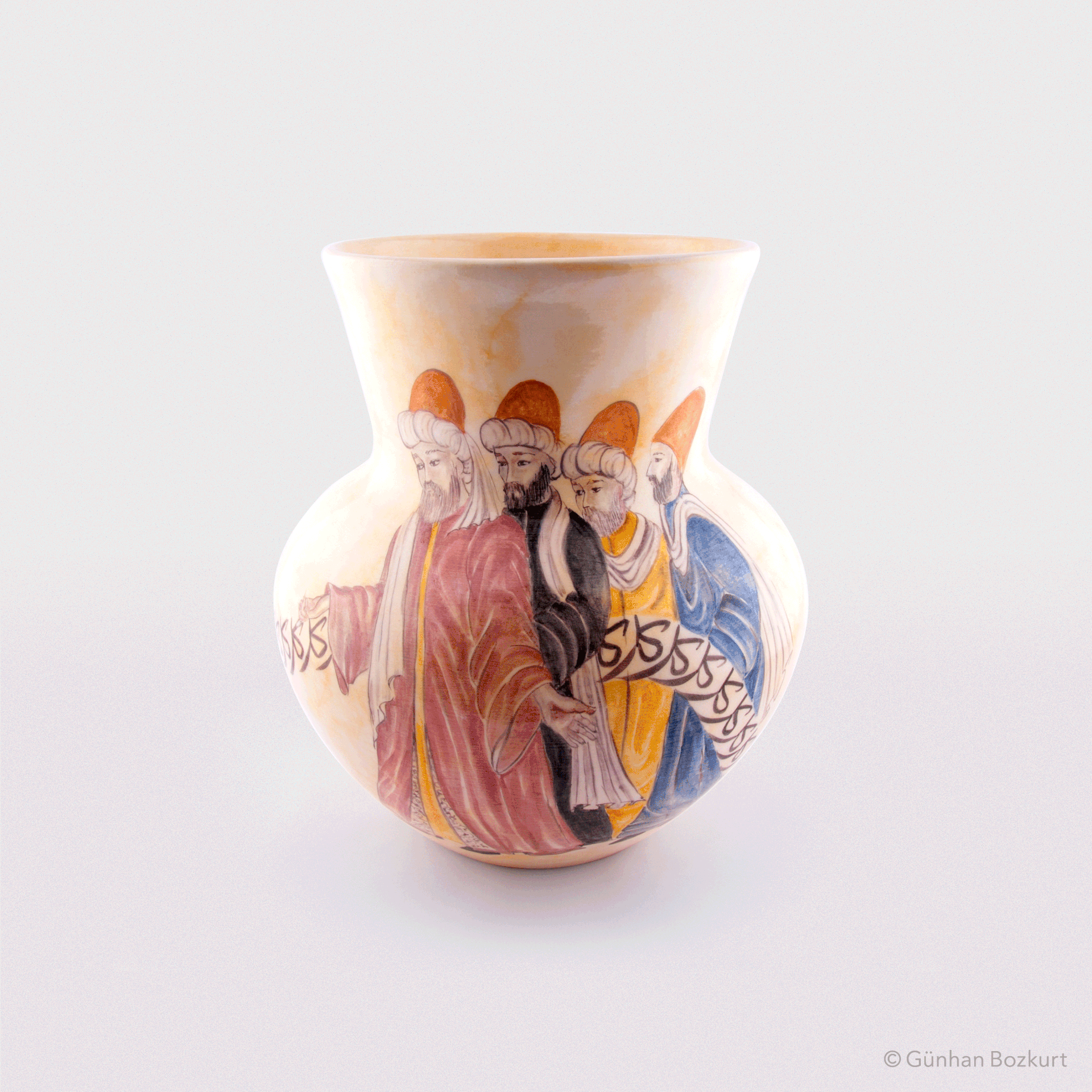
Dervish / vase, Ø 27 cm, h. 31 cm
At the home of Hüsameddin Çelebi, Rumi is deep in conversation with his disciples. A sufi passes through the garden, gathers a handkerchief full of roses, and enters the house. Embarrassed before Rumi and the others, he sits quietly by the door. Rumi turns to him and says: “The one who passes through the garden brings roses for good fortune, just as the one who passes a halva shop brings halva.” The disciples then scatter the roses throughout the room, filling it with fragrance, and begin the Firmament.
Rose Garden / bowl, Ø 31 cm, h. 20 cm
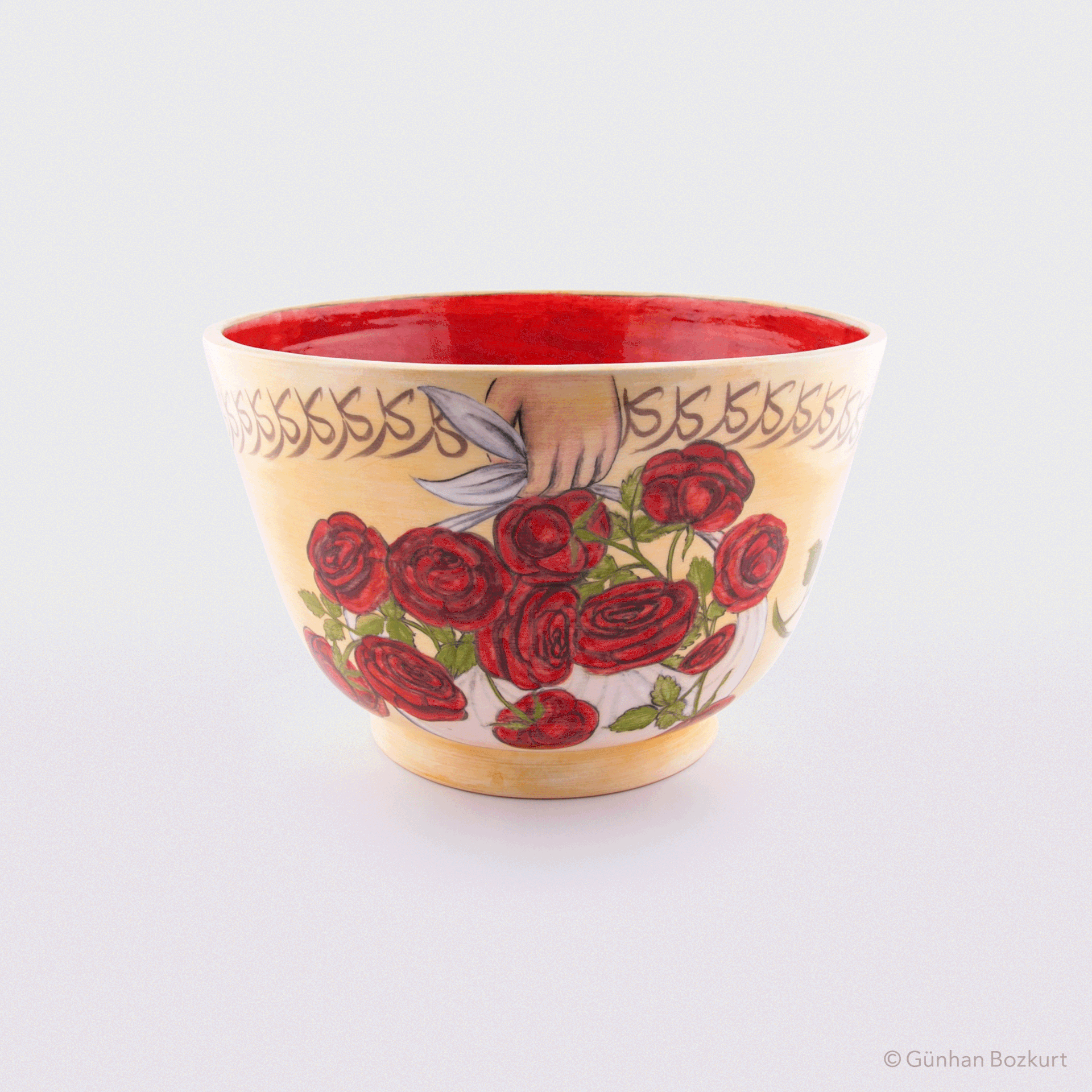
Rose Garden / bowl, Ø 31 cm, h. 20 cm
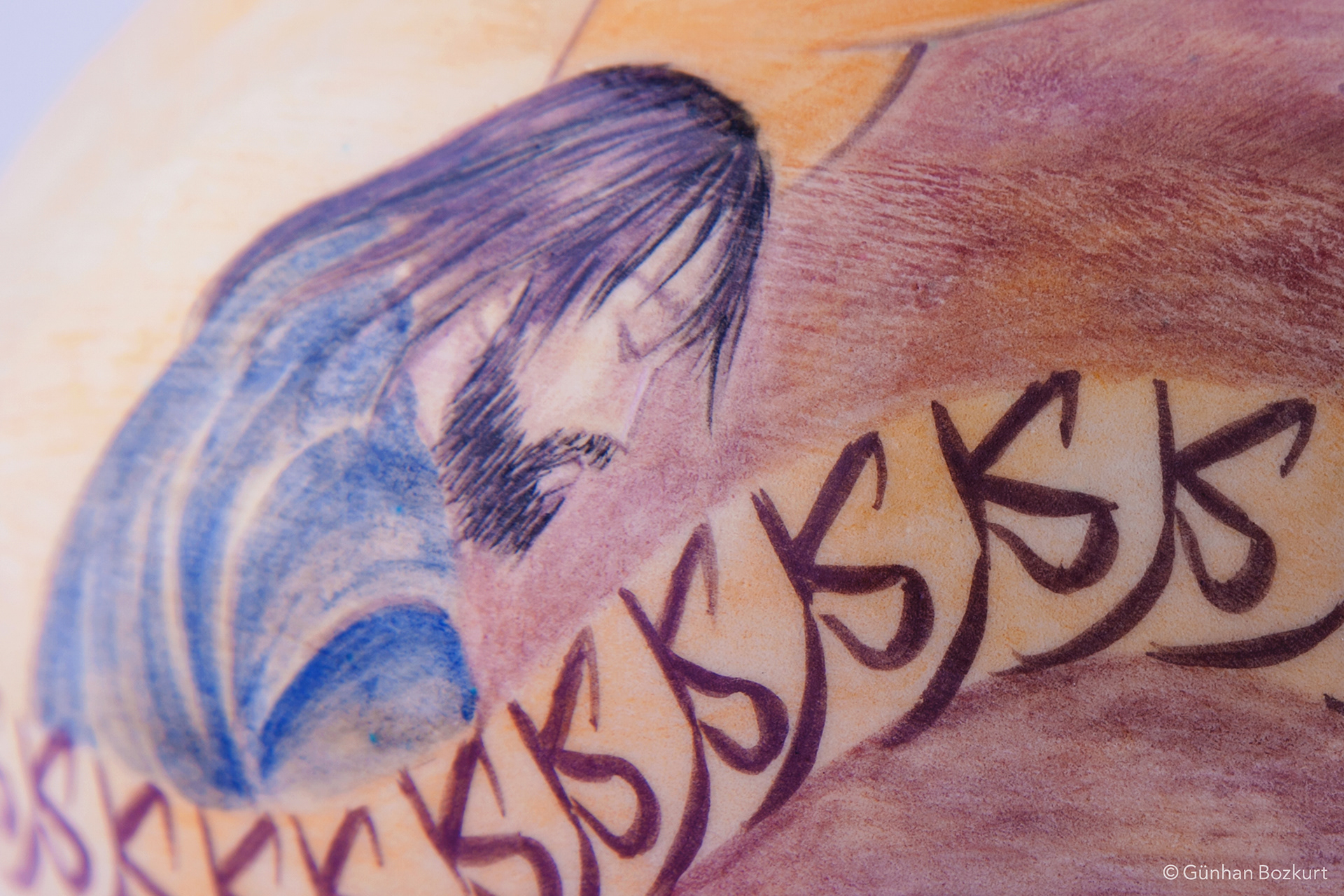
Detail from "Feast in the Desert"
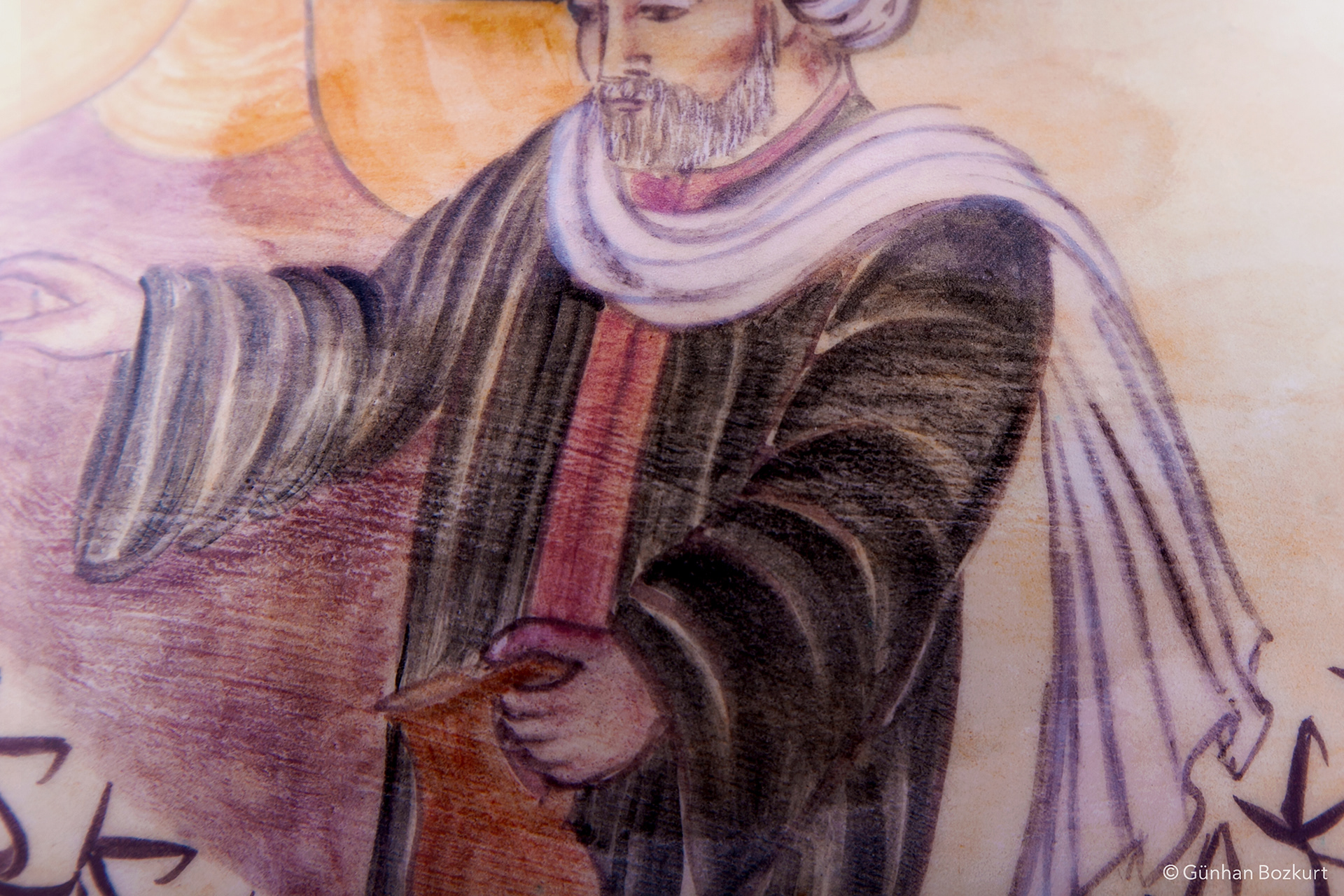
Detail from "Feast in the Desert"
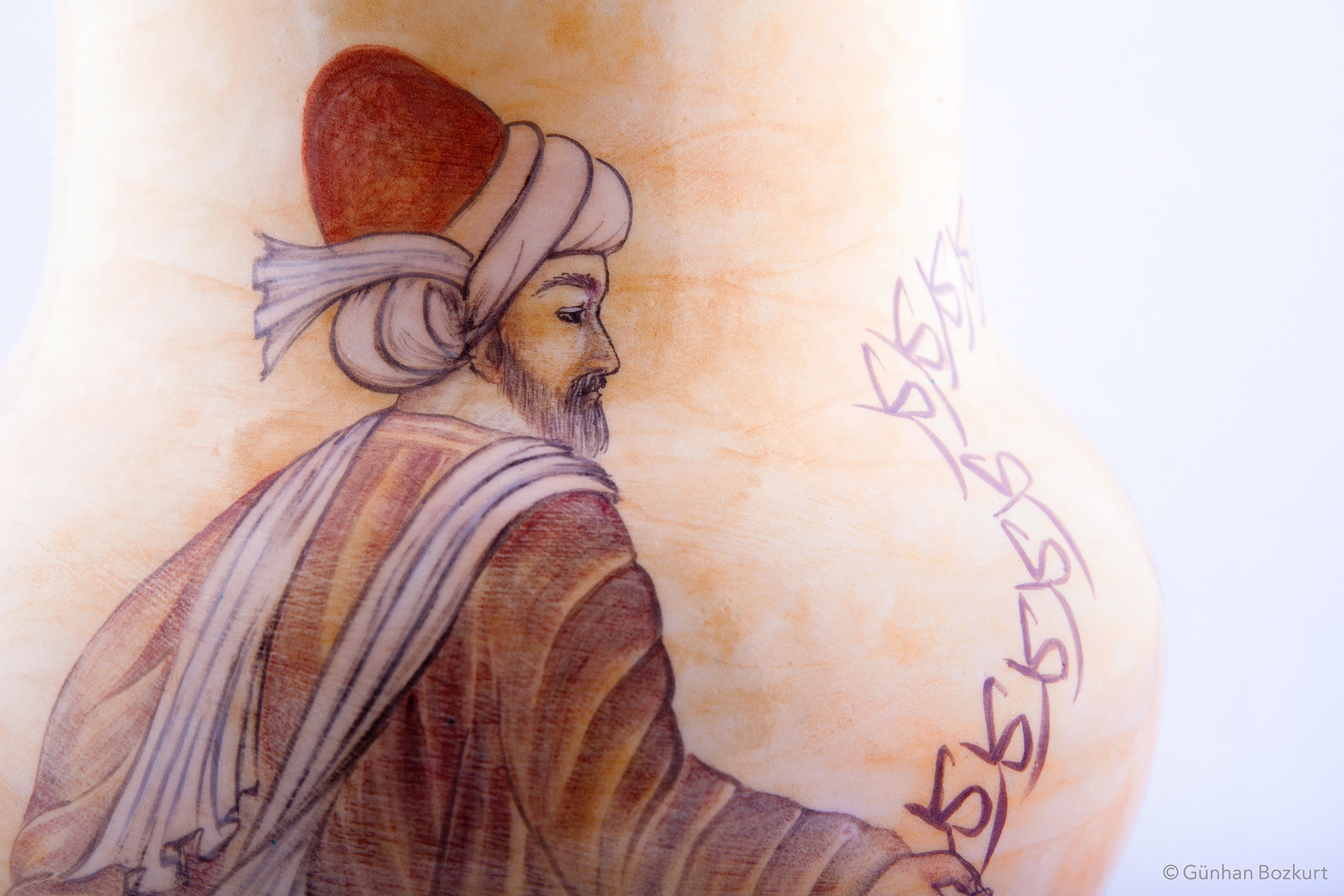
Detail from "Feast in the Desert"
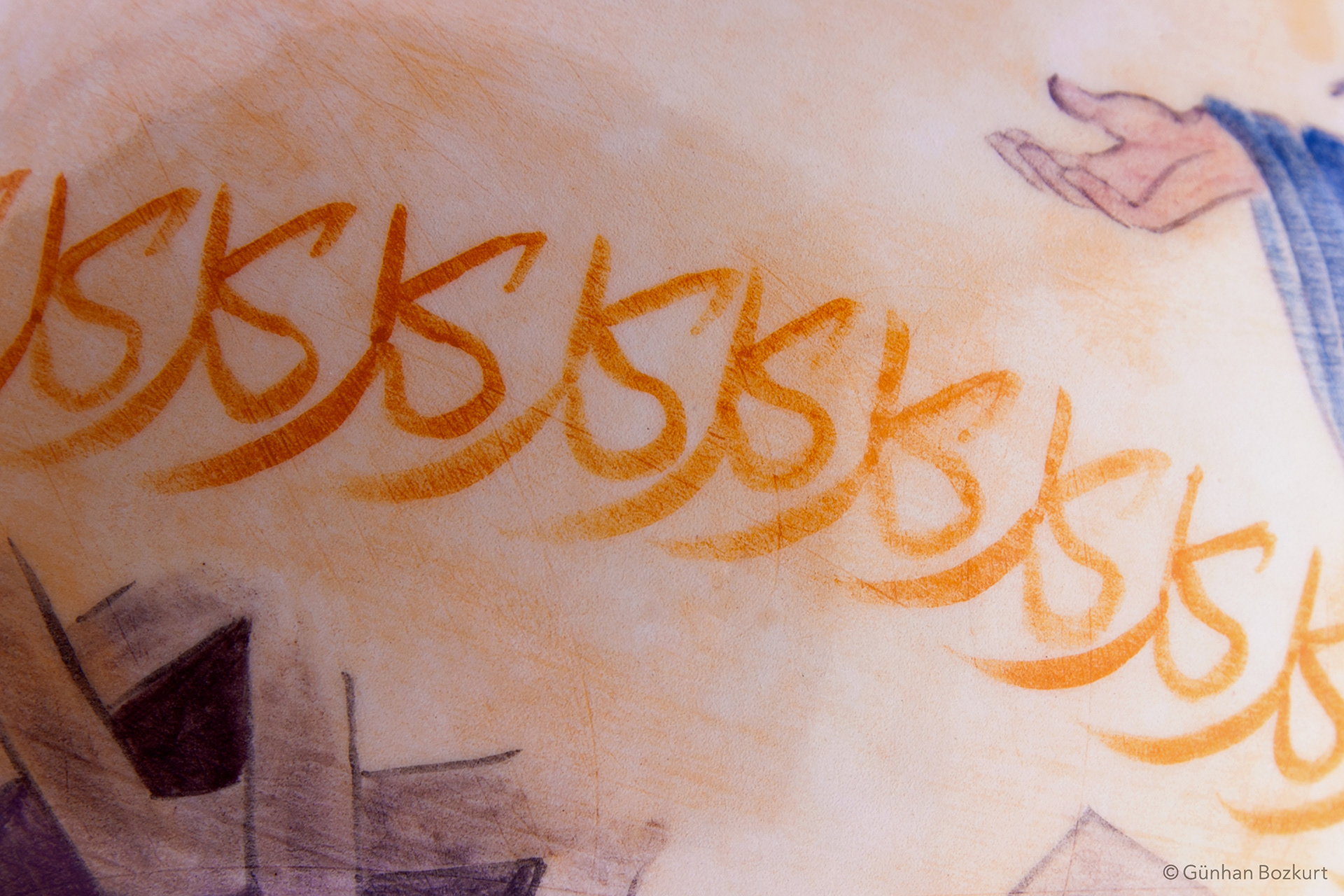
Detail from "The Firmament"
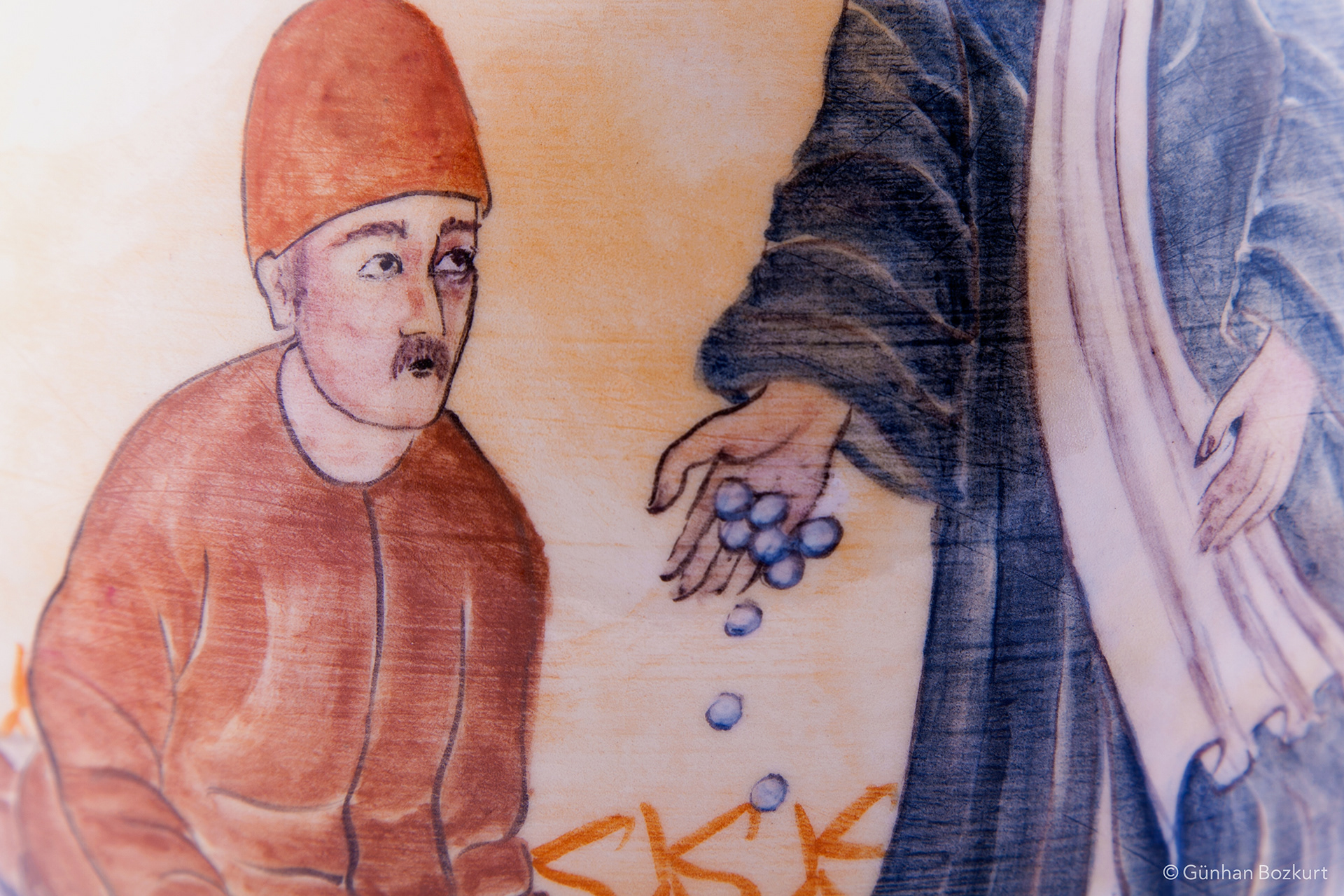
Detail from "The Firmament"
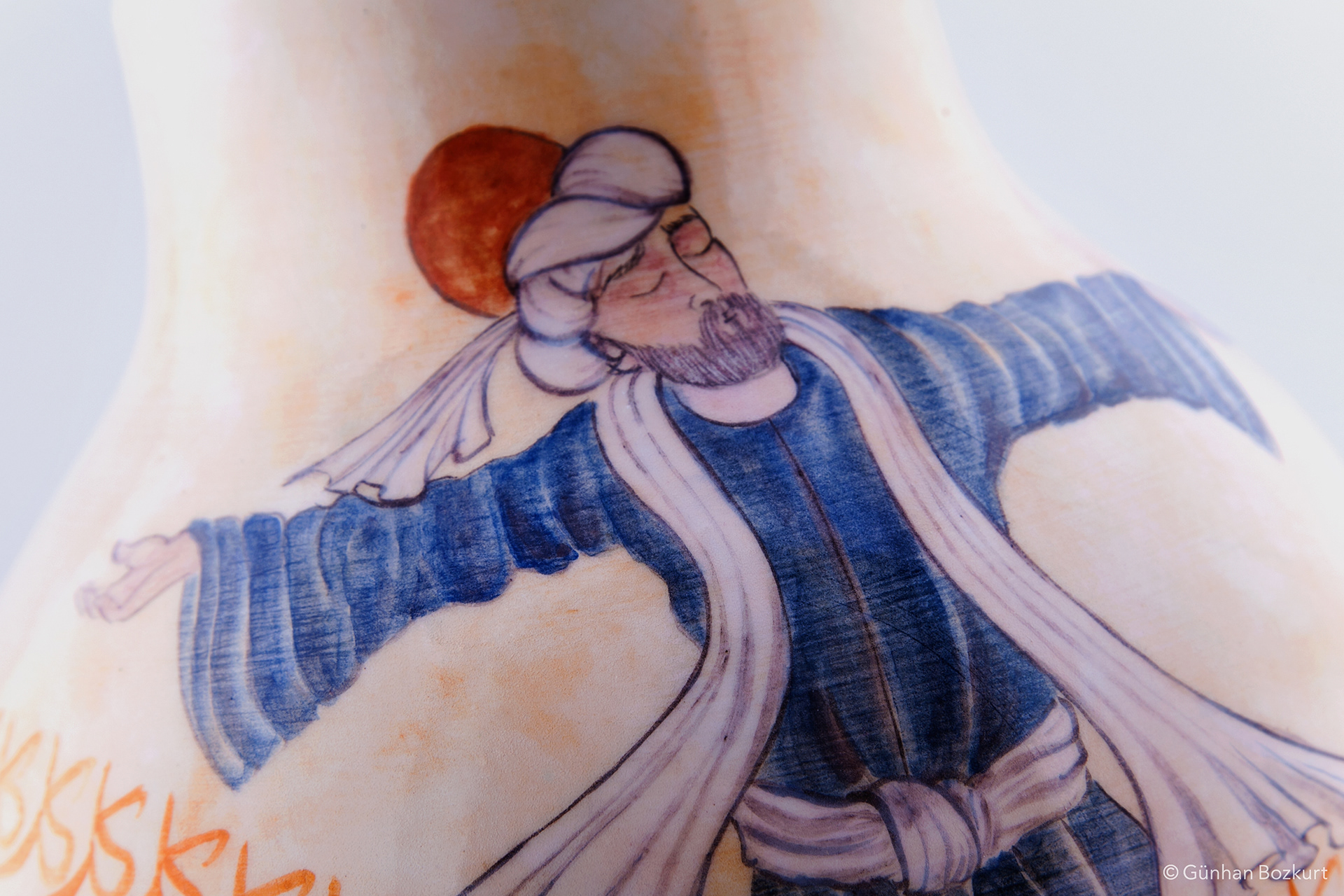
Detail from "The Firmament"
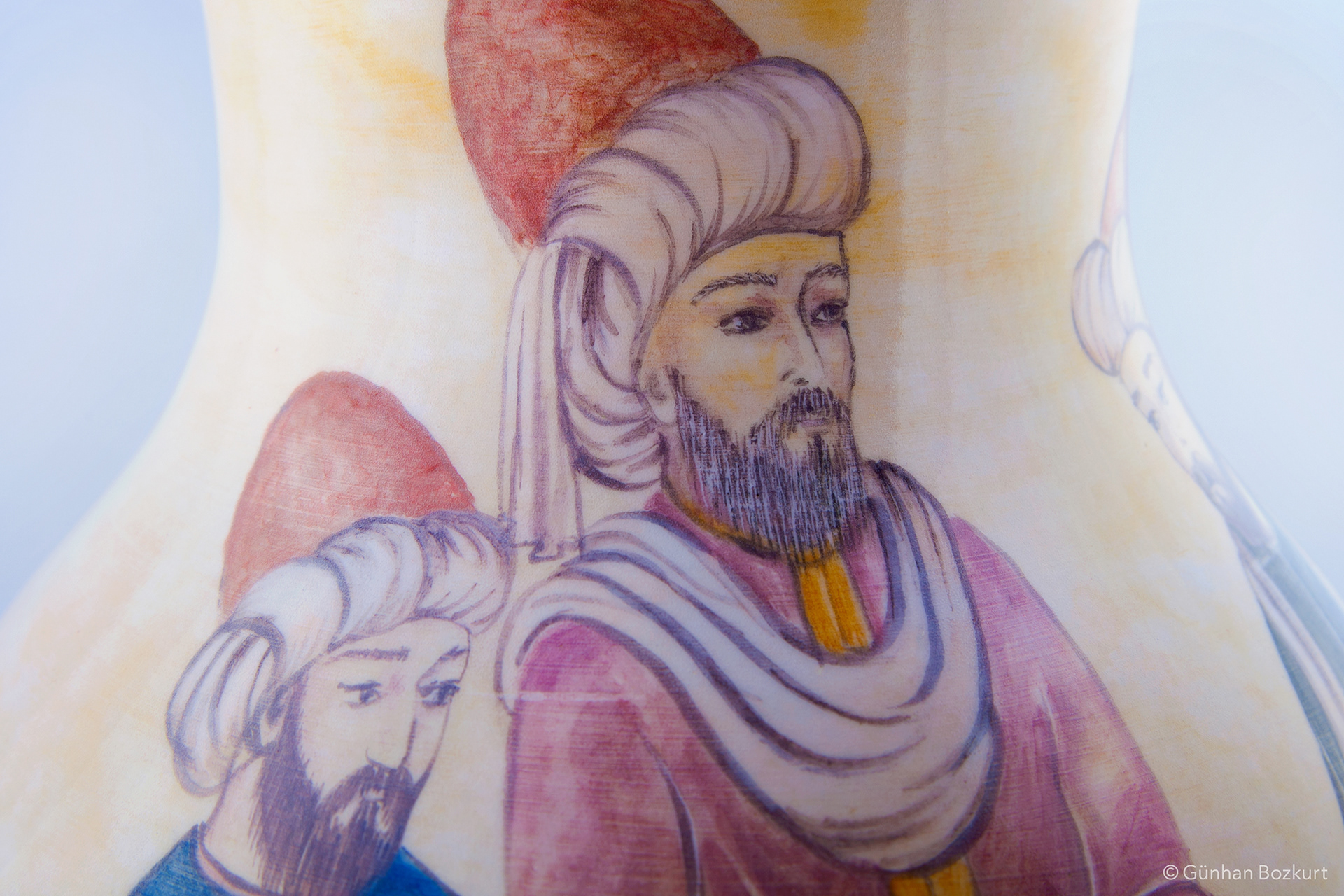
Detail from "The Blessing of Rumi"
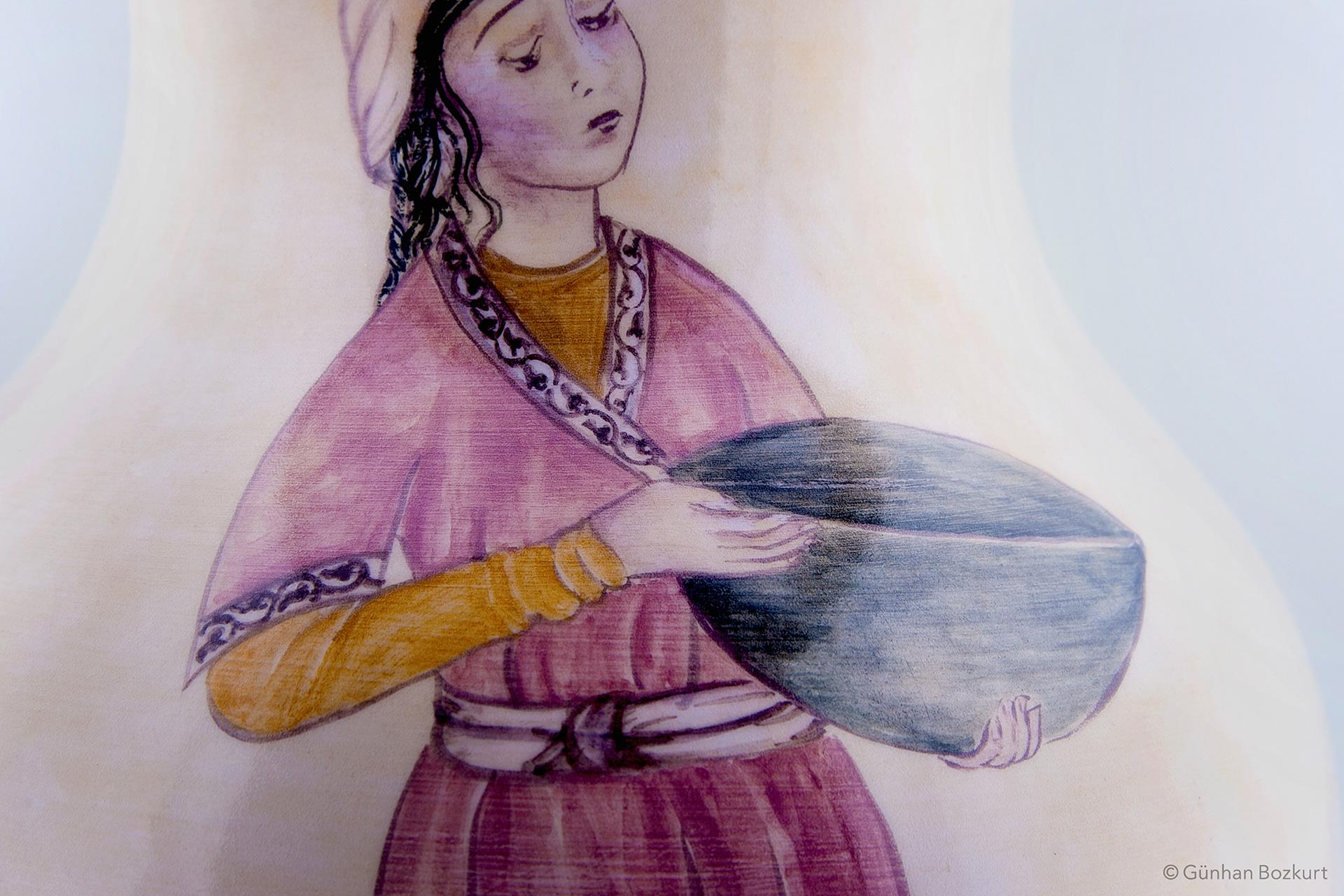
Detail from "The Blessing of Rumi"
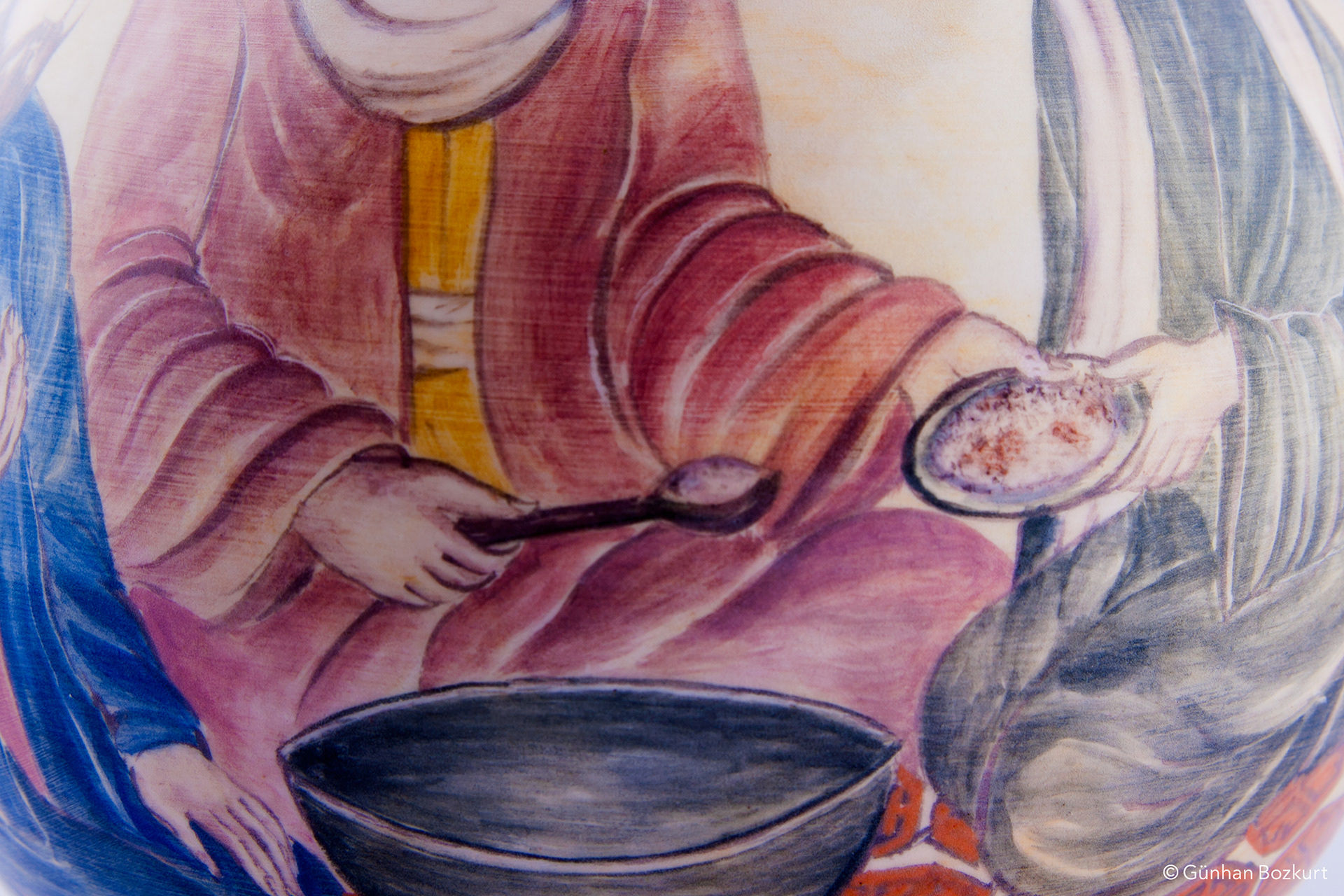
Detail from "The Blessing of Rumi"
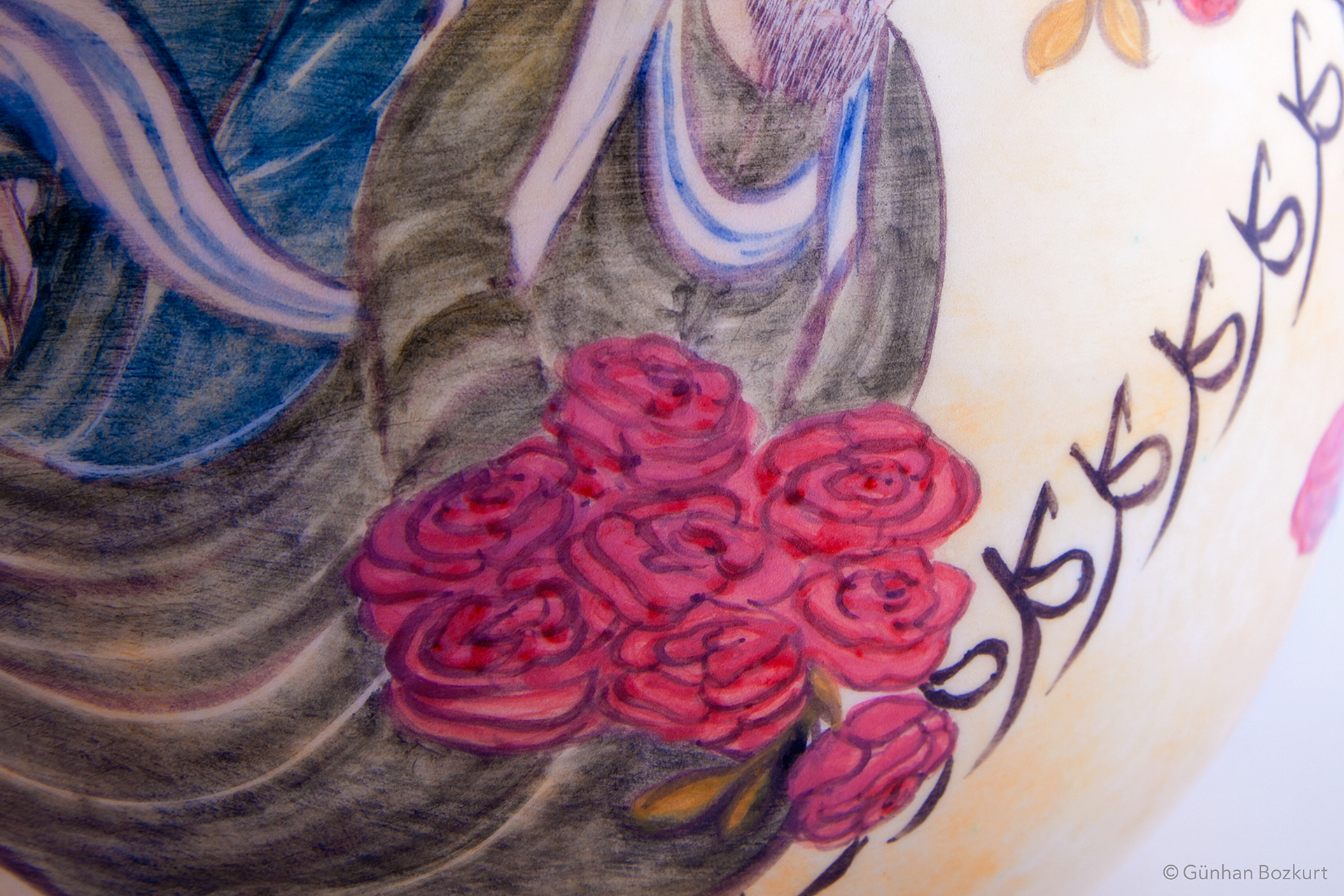
Detail from "Guests"
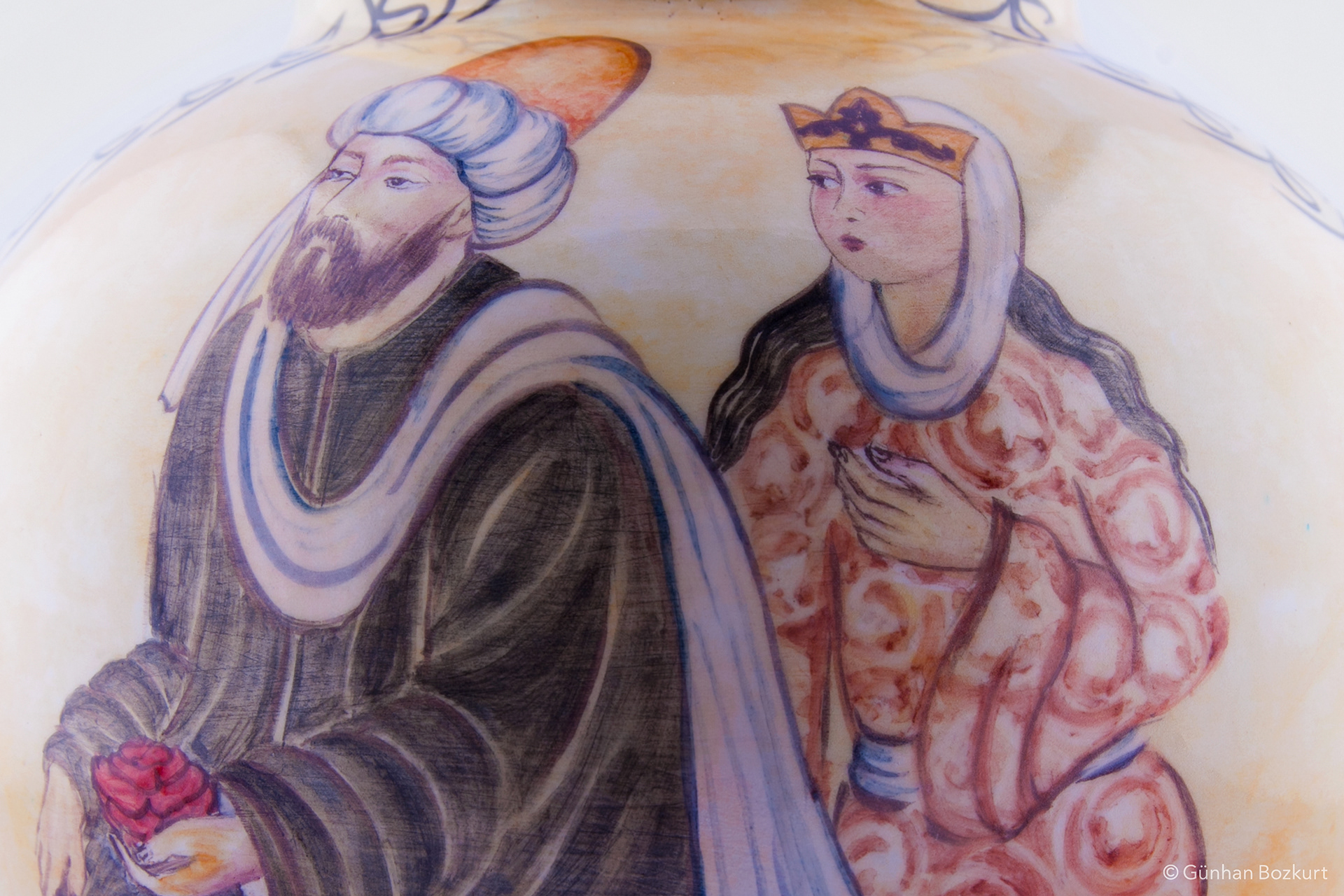
Detail from "Guests"
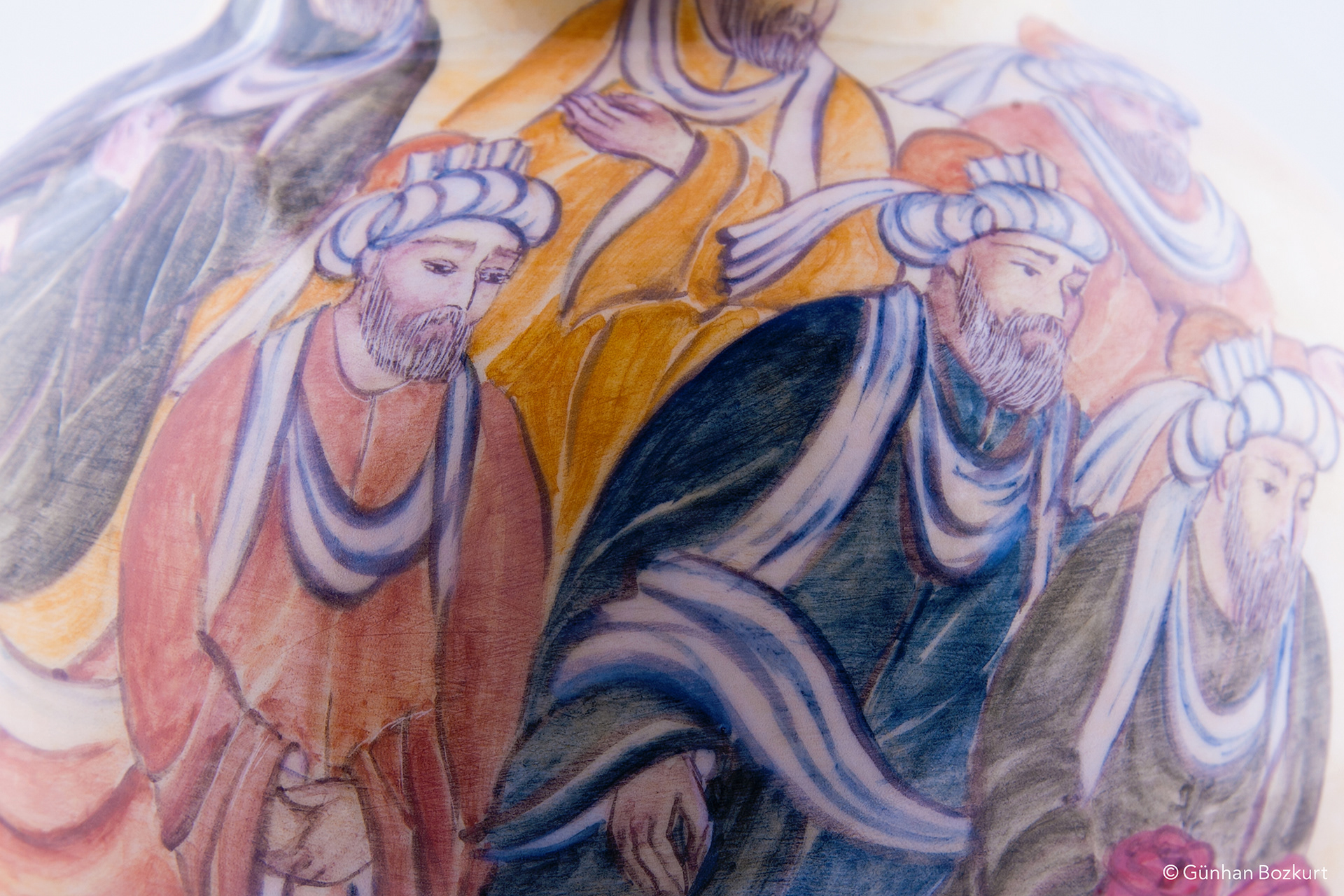
Detail from "Guests"
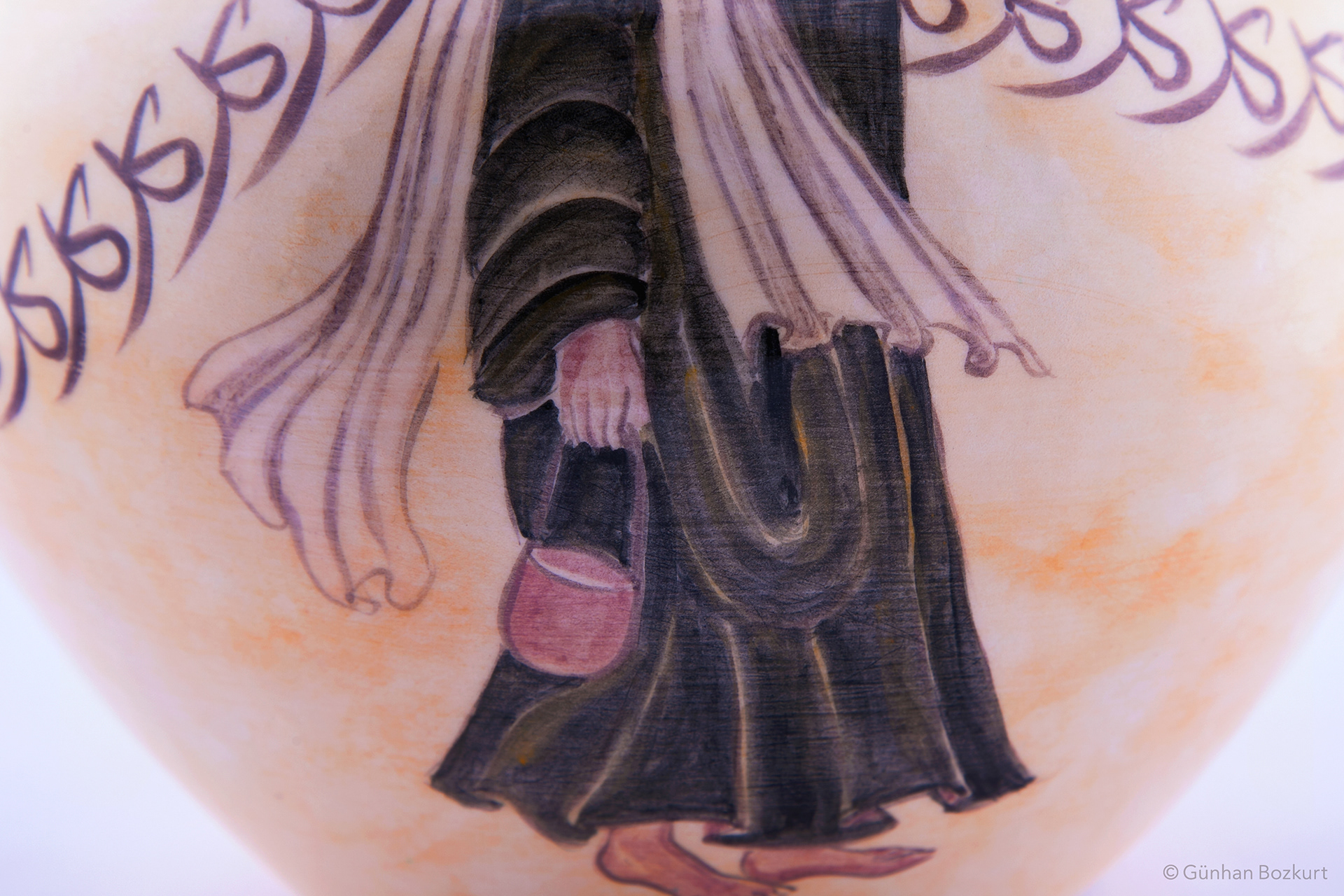
Detail from "Dervish"
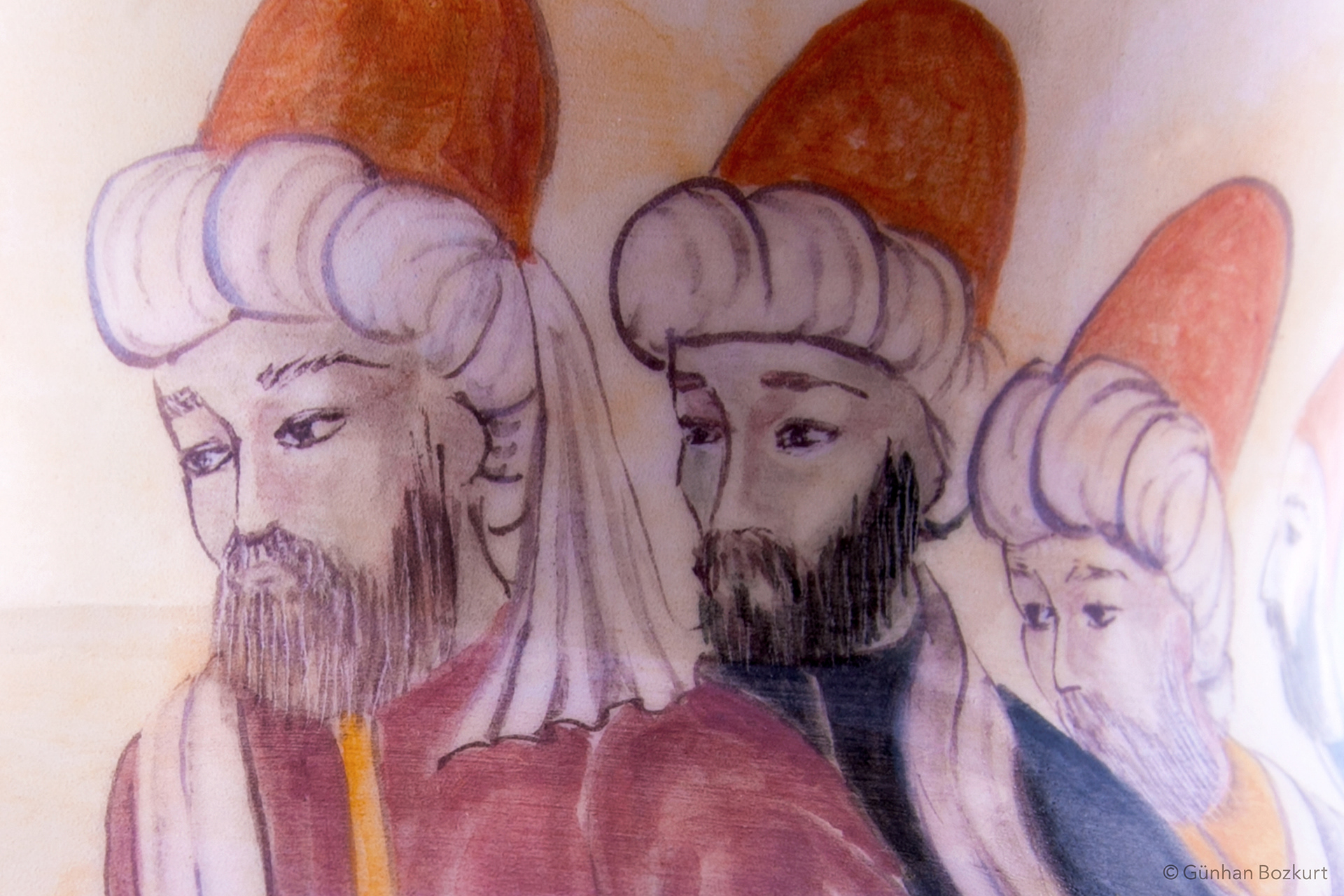
Detail from "Dervish"
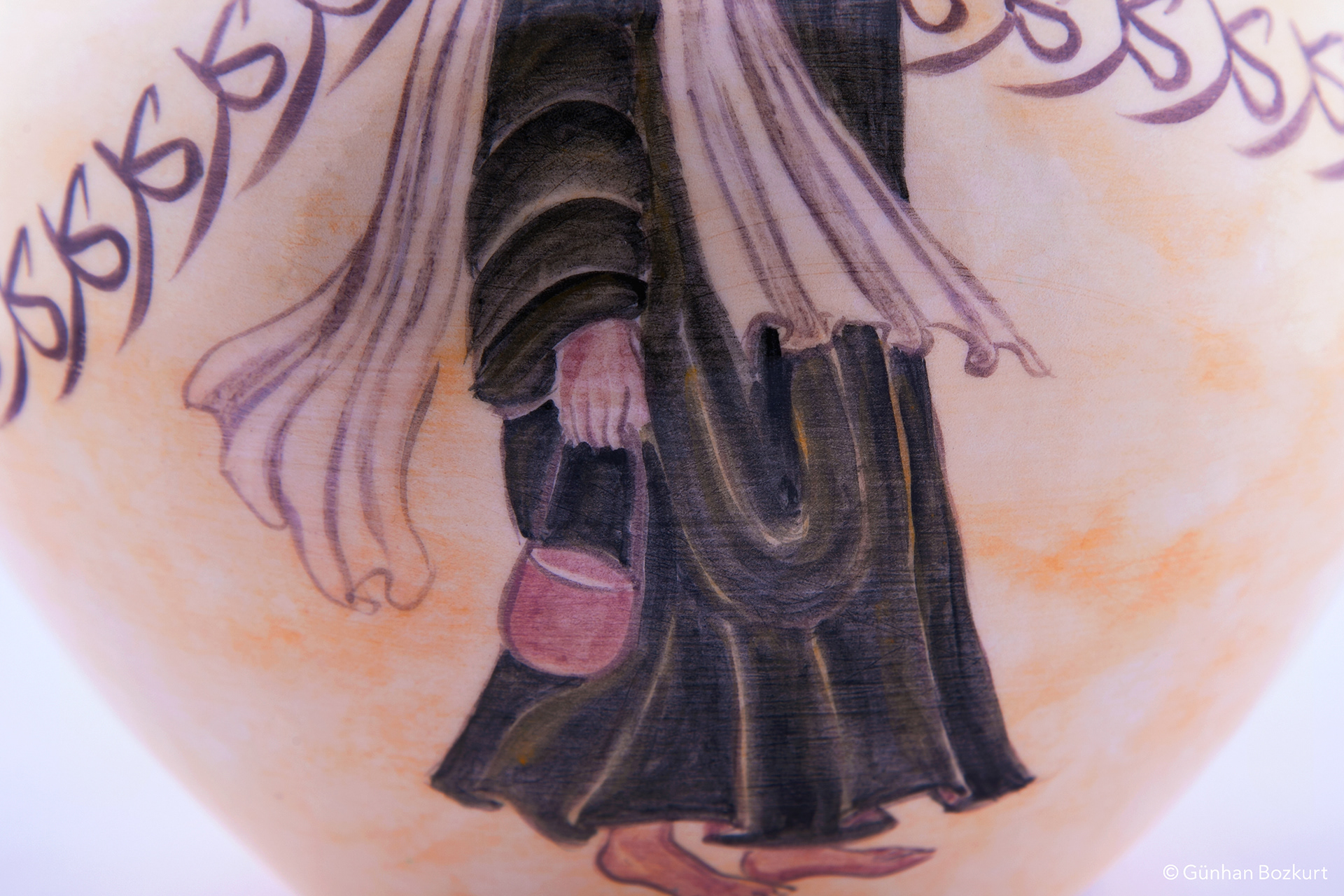
Detail from "Dervish"
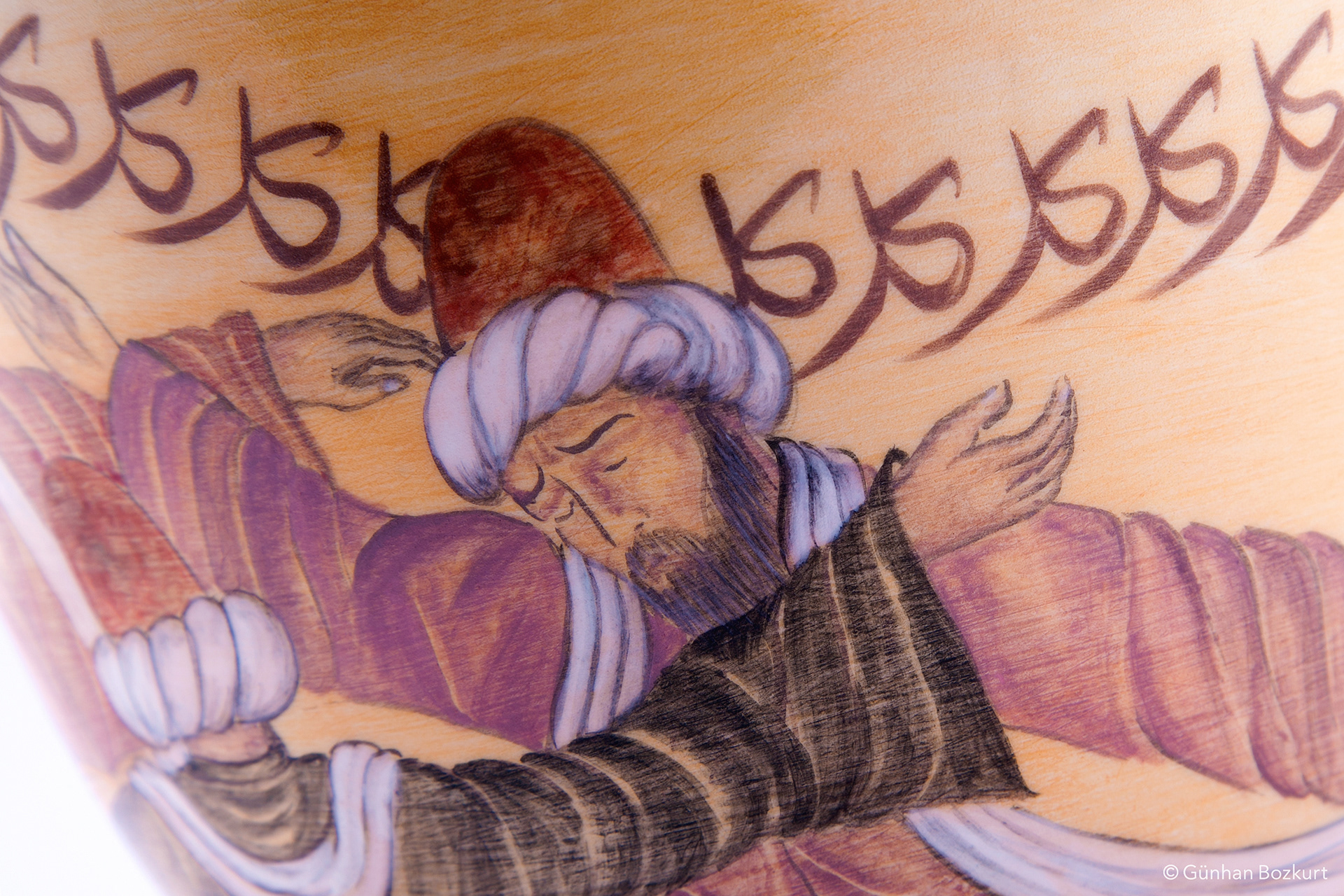
Detail from "Rose Garden"
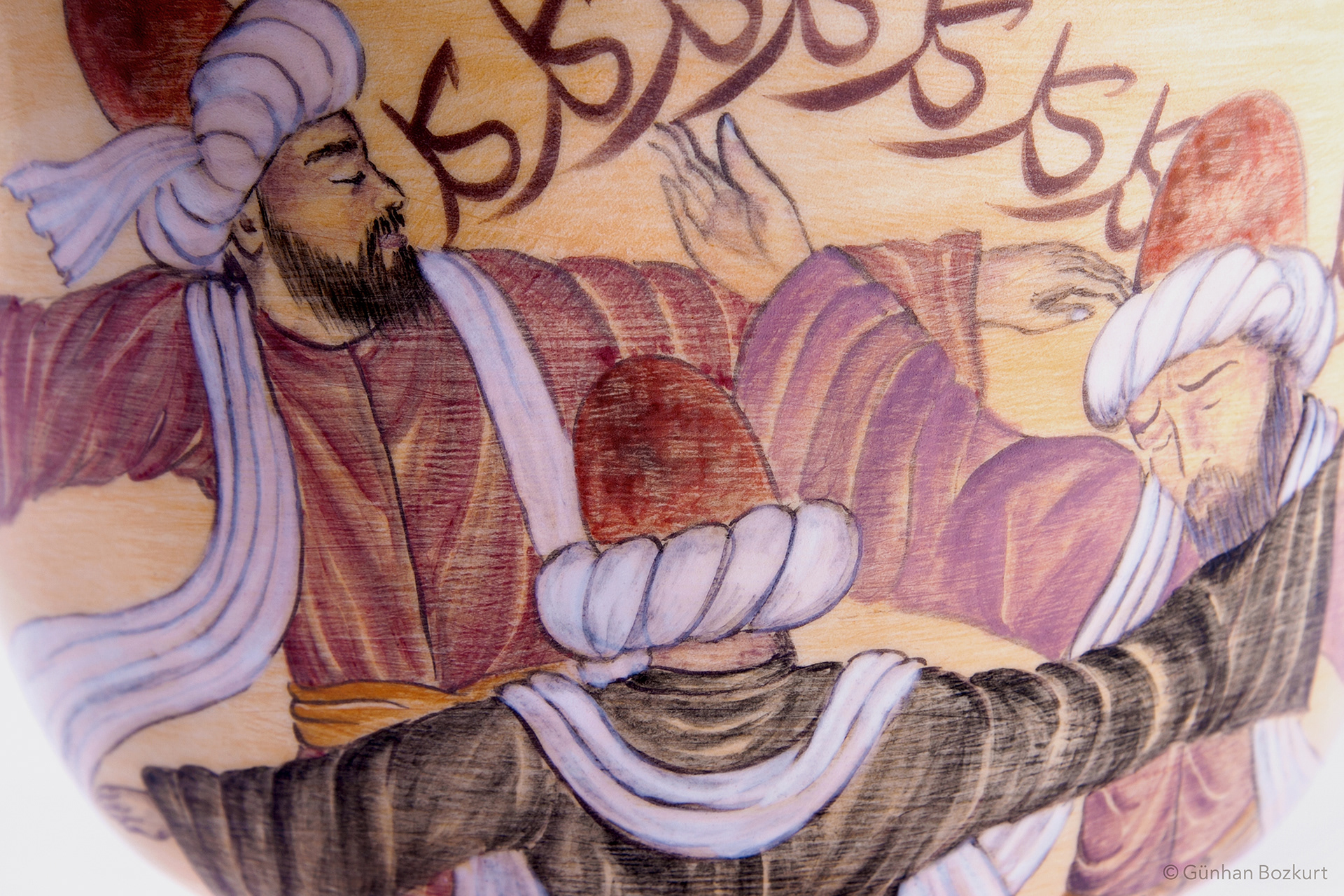
Detail from "Rose Garden"
